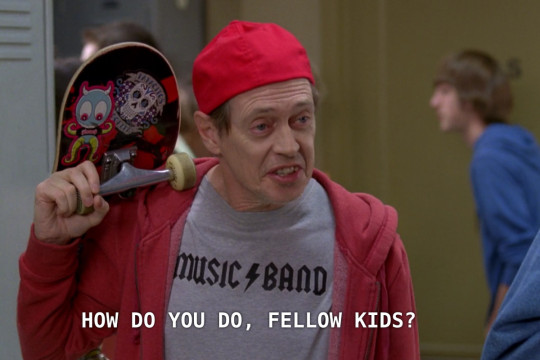#gonna do more research on like. nuns in general before i do anything
Explore tagged Tumblr posts
Text
i wanna draw sister helley SO bad but i dont know how to draw any sort of proper nun attire. and i dont wannt to put her in anything else bc that feels disrespectful. (sighs dramatically)

#gonna do more research on like. nuns in general before i do anything#because i am a respectful and open minded boy.#sister helley#wendell and wild
34 notes
·
View notes
Text
Paris Haute Couture Week S/S 2020 Plus a Little Jacquemus: Okay, Dior DID Suck (Part 1/2)
Hi to anyone reading,
Oh my god. I completely forgot there was also 2 haute couture weeks. I FEEL SO OVERWHELMED. Here I was getting all geared up for the F/W 2020 shows and suddenly it’s Jean Paul Gaultier’s last show and everybody’s (predictably) buzzing about the Jacquemus collection. I can’t keep up. But Haute Couture week is a lot less intense than the RTW shows so I suppose I should be enjoying this relative peace whilst I can.
I remember my last post about Haute Couture week opened with me defending Maria Grazia from the wrath of the internet; if Jacquemus is social media’s Lord and Saviour, this woman is the Antichrist. She’s Michael Langdon minus the dramatic flair. But the thing is, I genuinely really liked the Dior collection last time. Maybe because I was newer to the discipline of scouring Vogue Runway, but the lack of originality didn’t bother me; it was still something I’d die to wear, gothic yet delicate and relevant for 2019.
That being said, this time round, I have to open by doing the exact opposite and concurring: this time round, Dior was in fact, utter shit.


I feel mean saying it but...really? These were the slightly more salvageable outfits and my favourite of the bunch, and to be honest they don’t really capture the full extent of how outdated this collection was to me. I know that the concept behind the show was this idea of the divine feminine but Greek Goddess has been done SO many times. If you’re gonna go down that route, you have to bring something new, elevate it in some way. It can’t be THIS generic.
I can’t believe that in 2020 we’re really seeing plaited hairbands. The individual dresses are basic, but not so much the problem as the styling; they look like outfits I would’ve put together back in 2012. That’s not an exaggeration. I think even 2013 me would appreciate that you need to make things a little twisty.
The colour scheme is pretty, don’t get me wrong, and I like the cowl necks-the white dresses are the highlights. I think the concept of this collection was conceived with all the best intentions. But as a designer you need to take risks and I don’t see one single risk here; there isn’t anything that wouldn’t already be sold in your local H&M. Dior is such an established brand, Maria Grazia has room to do whatever she wants. And yet it just comes across like she’s out of ideas.
You’ve got to look at a designer like Ulyana Sergeenko:






When I say elevated (but still in the vein of wearable), I mean something like this. To be completely honest, I hadn’t heard of Ulyana Sergeenko until I saw shots of this show on Twitter. But what a perfect mix of kitsch and glamour. The influences are clear: Priscilla Presley, Barbie, Jackie O, Valley of the Dolls, the rich stay-at-home wife of the 60s, the Alessandra Rich/Scream Queens-esque sorority girl, Paris fucking Hilton. It’s exaggerated and it’s tongue in cheek with total grounds to call it trashy-there’s a corset resembling a Benjamin Franklin, ffs-but it’s all done with a wink and a nudge. And in all honesty, I just think it��s beautiful. Can you imagine Frances O’Sullivan (@Beautyspock on IG) in one of these looks? It would be worthy of the Rose McGowan cultural reset meme ten times over.
Everything is feline, from the very literal cat silhouettes and cat headed boa, to the makeup and the hair clips. It reminds me of the last RTW Ralph and Russo show but with even more attention to detail. And look at the STAGE. If this collection were a song, it’d be Disco Tits by Tove Lo. And no, I’m not just saying that because one of the dresses actually does feature a (cat shaped) disco tit. Like these are the clothes I dreamed of putting my Bratz dolls, and for null I’m sure, myself in. Absolute perfection. Plus, I’ve loved Coco Rocha since she was on The Face with Naomi Campbell; she is, after all, to thank for the iconic “check your lipstick before you come for me” line. Girl is really the martyr for all purple lipstick lovers, cut down in her prime by a pissed-off Naomi.






Onto Alexandre Vauthier, which I also really liked. An interesting yet effortless blend of the old and the new, the masculine and the feminine, if I could sum this collection up in one word, it would be cool. I know, it’s not the most descriptive, but it pretty much sums up how I feel; I’m not AS gassed about it as I am about Ulyana Sergeenko or this season’s Elie Saab (wait for it), but it’s a fresh offering, even if the styles aren’t the most groundbreaking. Stand outs for me are the almost petticoat like, debutante dresses which have Elle Fanning’s name written all over them.




I was hard pressed to find favourites in the Armani Privé collection if I’m honest. I’m not saying it was awful, all I know is that it just isn’t my style. It’s all a bit TOO tailored for my liking, and kinda reminds me of the Zara pantsuits my Spanish teacher used to wear. In other words, I find it to be a bit dowdy. On a positive note, the colours, fabrics, and beading are all stunning, so I see that a lot of craftsmanship clearly went into it; I think my biggest issue is the styling and the shapes (or lack of) on show. I’m very much getting a 20s, flapper vibe and whilst that’s an era that fascinates me and that I appreciate was cutting-edge at the time, I’ve yet to see it be bought into the 21st century in a way that doesn’t look stiff or costume-y.





Then there’s Azzaro. At the complete opposite end of the scale to Armani, it doesn’t look expensive, which I’m sure isn’t something any designer previewing their collection at haute couture week is striving for. BUT that being said, I’d be much more likely to wear something from this collection than I would from Armani Privé. I mean, I have no shot at ever wearing either but ya get me.
Whilst I’m sure it or something similar has been done before, the mesh diamanté dress is exquisite and I’m a huge fan of the stacked gem chokers and belts. The whole collection looks like something a London socialite who parties by night but (deep breath in) plays in a shitty band so fancies herself a bit of a rockstar by day would wear (exhale) and as much as that doesn’t sound like a compliment, I mean it as one. I’m talking about the kind of person you’d see smoking outside a bar and think “I wish I was them but I am potato lol”. I mean, as far as faux fur and fedoras are concerned, I’m gonna find it hard to completely slate a collection so this is pretty up my alley.







Chanel was a huge step up from their last RTW collection, imo, and probably on par with their last haute couture offering. It’s that same blend of preppy Chanel detailing (i.e the exaggerated collars, the checks and the lace) and practicality, only even more austere this time round.
It’s funny because when I looked back on original notes on this collection, before I’d even done any research into the context, I saw that one of the things I’d written was “giving me Victorian orphanage madame” as well as “something something Amish” and I wasn’t THAT far off base. The collection is, after all, supposed to be a tribute to the nuns who raised Coco Chanel at the beginning of the century in an Abbey-cum-orphanage. This makes me really happy; I know not everyone’s a fan of Virginie Viard’s nods back to the past and the brand’s origins but as a history nerd, I definitely am.
There’s also definitely a lot of things that can be translated into high street trends here: the combination of decorative white socks and black shoes is something I’ve seen making a comeback already, tulle is always a winner (I actually don’t mind it as an overlay, I think it’s pretty, sue me) and I have no doubt we’ll be seeing these dramatic collars creeping back onto tops and jumpers throughout the year. It’s been a while since they were a thing anyway and we all know how cyclical fashion is.













Another high note for Elie Saab this haute couture season; if I was an expressive person, I probably would’ve audibly gasped as I looked through this collection. It is SO FUCKING MAGNIFICENT. The colour scheme, the baroque prints, the floral sequinned embroidery, these are Cinderella style ballgowns taken to the next level. Elie Saab really is the definition of opulence and I’m not at all mad about it. Please, somebody put Lana Del Rey in one of these, PLEASE. Remind her how much of a princess she is and get her out of those “soccer mom” looks.
I’m so stuck between this collection and Ulyana Sergeenko as my favourite, and the latter might just pip the other to the post, purely because of the staging and extravagance of the presentation itself.










Georges Hobeika was predictably phenomenal. Like, I’m not going to lie, I am easily won over by some sequins and tulle, I’ve never claimed any different, and if you can expect that from anyone, it’s this guy (ignore that phrasing making me sound like his proud mother). The colour scheme is very spring appropriate and so is the 3D flower detailing, and if there’s anything good to take from Ascot and English royal weddings, Georges Hobeika knows it’s the hats.
It was another strong year for Givenchy too:







Though Claire Waight Keller is also fond of the extravagant details along the lines of feather and tulle, it’s always done in a more organic way; the details are always more reminiscent of nature, something created by accident, than they are suggestive of painstaking attention to detail, the image of someone hunched over a dress beading for hours on end à la Georges Hobeika or Elie Saab. That is not a bad thing at all; if anything, it makes Givenchy more interesting to study and gives you more to think about. Sometimes a dress takes you a bit longer to fully appreciate, but I’d say that only lends to its memorability. This year’s willowy, billowing, and at times coral-esque structures remind me of something I can see being worn down an Iris Van Herpen runway, set apart by that delicate Givenchy finesse. And side not: I know this post is to talk about the clothes, not the models, but I got super excited over seeing Sora Choi and Adut Akech walk too.



Guo Pei is always fun to look at. I mean, this collection is giving me half Matryoshka dolls, half It’s A Small World Christmas edition and I can’t hate on that.





And then there’s Iris Van Herpen, who knocked it out of the park once again. At this point, I wouldn’t expect anything less. Every outfit looks like something that could be exhibited in the Tate Modern (I know, it’s a basic opinion, but it’s true: TATE MODERN IS THE BEST MUSEUM IN LONDON), or honestly, the Design Museum, just for the genius that must go into the way these dresses move. Honestly, if I can see a goddess wearing anything, it’s more one of these looks than anything in the Dior collection. Like wife of Poseidon or something; I know it’s not very feminist of me to not know the Greek Goddess of the sea’s name but I only know who Poseidon is because I was a Percy Jackson fan back in the day so let me live.
It’s not like the whole under-the-sea theme is particularly new, Zimmerman did something similar last RTW (I think? Correct me if I’m wrong), but these constructions could’ve grown out of the sea bed themselves, which is more of an original take than “oo, blue and white and frothy hemlines!”. Additionally, we’ve got these dresses with the overlapping almost plaited fabric that are-we’re sticking with the goddess references here-fit for Persephone ruling over hell. As for the Grudge-looking dress (fourth down, far left), I could be reaching, but is anyone else seeing that as a nod to the oil spills polluting our oceans? Because that would just add yet another layer to this collection.
Regardless, it’s all impeccable and I’m in love. Iris Van Herpen as a MET Gala theme. Make it happen.
Anyway, to end on a high note, that’s it for this post!
Sorry it’s such a sudden cut-off but Jean Paul Gaultier was due to be my second to last to review and due to it being the final show, there’s an onslaught of photos that would not fit with what’s already in this post. Plus, I’d rather start a post with Jacquemus then end it as I feel like there’s a lot of hype around his collections online right now so 1). it’s clickbait (for what, I do not know, as I’m not exactly making any money off this blog, just losing my sanity as it transpires when Tumblr accidentally terminated it earlier today and I had a minor breakdown) and 2). this Steve Buscemi meme is the most accurate representation of only 21 year old me to grace the internet:

I will aim to post part 2/2 in the next week, including JPG, as I just mentioned, the Jacquemus co-ed show, Margiela, Valentino and more, and as always, thank you for anyone who read until the end! You are an angel:-)
Lauren x
#haute couture#haute couture week#pfw#paris fashion week#paris#fashion#fashion week#designer#jacquemus#dior#style#review#iris van herpen#guo pei#givenchy#elie saab#sequins#pretty#georges hobeika#chanel#pastels#armani
744 notes
·
View notes
Text
Lockdown - A short horror/thriller story
Recording date not found. Author Unknown. Located in the Chainwell Tor Research Facility Database. Log 1.
M: So… It looks like we’re in here for the long haul…
(Pause)
M: I think I heard somewhere that, to avoid going crazy on submarines, sailors get themselves into routines. It’s been nearly two weeks since… Well, it couldn’t hurt, I guess.
M: I started out slow. Ease myself into it, you know? Having breakfast, getting in some exercise, checking the security monitors. Still nothing. Not even cats. And cats get fucking everywhere. You know how long it’s been since I’ve seen a pigeon? Fucking… ages man. I mean not ages, but like… It’s crazy.
M: I did find a rat, though. Found him in a box of shreddies. He kept making this horrible scratching noise. It’s okay though. I fucking hate shreddies. I’ve decided to name him Jason, for obvious reasons. He now lives in a little cell I managed to rig together. He seems happy. Still likes to bite me, bloody nuisance.
M: I started going through the boxes. Some of the stuff was… Weird. I’ll say it, it was weird. I mean, who packs a Furby? In an emergency bunker? I mean who looks at Gods mistake of a children’s toy and thinks “yes, this will get me through the end of the world”. Its fucking creepy, is what it is. I’ve left it in a corner, next to the toaster. If it turns around, I’m out.
M: And now I’m talking to you. Like you’re a person. Like you care about any of this. Like you won’t outlive me by a decade, assuming, you know, the electricity stays on and nothing springs a leak.
M: But… that’s it. That’s my day. Fucking bollocks, that.
~~~
Recording date not found. Author Unknown. Located in the Chainwell Tor Research Facility Database. Log 9.
M: I decided to go exploring today. Started making a map of this place. Goes on forever. Found some cool shit, though. Greenhouse. Supply room. Hell, even found someone’s stash of porn. Truly, the essentials.
M: Coolest thing, though. I found a radio. Not one of the digital ones. Like, 80’s to 90’s shit. Looks like it was used to broadcast. Bit old school, but I think I can get it set up again. I’m hoping someone, out there, might have had the same idea. Maybe they’ll come rescue me.
M: Anyway, my day. Yes, that’s what you really want to know about. Um… Had breakfast, did exercise. Fed Jason. I swear, he’s getting fat. Picked out a book to read. “Lord of the Flies”, cheery I know. But it only seemed appropriate, given the circumstances.
(Sigh)
M: God, I sound like a dating profile. I mean, dating a computer wouldn’t be that bad but, I hate to say it, I just don’t think you’re my type. We can still be friends though. Get a pint from time to time, smile awkwardly at parties. Then you and your boyfriend will have a fight one night, and you’ll call, just wanting a friend, but we both know it’s more than that. We have one drunken night of passionate love making. But we never talk about it.
M: Ooh, that’s the timer. My steak and kidney pies ready.
~~~
Recording date not found. Author Unknown. Located in the Chainwell Tor Research Facility Database. Log 15.
M: God, that Ralphs a nark. All that “… eyes that proclaimed no evil” shit. He’s so preachy. I bet, if he had access to the internet, he’d be just as “innocent” as every other boy his age. Then we’ll see who’s so golden.
(Chuckles)
M: Same as usual. Breakfast, exercise, security cameras, tended to the greenhouse. The potatoes are coming along nicely, and the sunflowers. I’m surprised. I thought they’d need more, you know, sunlight. But halogen will have to do. I can’t exactly go and clean the windows from the outside.
M: Then I went to feed Jason… I don’t know if I should call her that anymore. Turns out he is a she. And she had babies. Tiny little pink bodies, all squirming and squeaking. Their eyes aren’t even open. Never seen a baby rat before. They’re kind of gross, but also kind of cute.
M: Went to check on the radio for a few hours. Calm my nerves a bit. It’s not every day you become a dad to five little rat shaped testicles. Thought I heard something at around seven, but it turned out to be nothing. I think it was just, like, a World War Two radio play, or something. Shooting and shouting, you know the sort.
M: But that’s it for today. Now for some good old-fashioned alone time… As if I haven’t got anything else.
~~~
Recording date not found. Author Unknown. Located in the Chainwell Tor Research Facility Database. Log 26.
M: Okay, lets get this shit over with. Woke up a little earlier than I would have liked. Damn scratching. I think Jason might be getting some cell mates soon, if I find the culprit. Had breakfast, did exercise, all that good stuff. Fed Jason and the Ratgonauts. Their skin has gone darker, so that’s good… I think… I don’t actually know. God, I wish I could ask someone. Anyway, tended to the greenhouse. Then I went to check on the radio. And, fucking hell, that’s when the interesting shit kicked in.
M: I heard someone. Out there. I’m sure of it this time. I wrote down the words. Hold on… Mm…
(Paper rustling)
M: Fuck, where is it? AH! Here. The signal was a bit shit, so I didn’t get all of it, but this is what I’ve got.
M: To anyone out there… Please… Keep… My name is Sophie. I’m in… To anyone still out there, if anyone is still out there, I am here. I am still alive. But I don’t know how long I can last. Please, if you can hear me, my frequency is… That’s where it cut out.
M: I knew it. I fucking knew it! I knew I couldn’t be the only one left. And if I’m picking up on her signal, Sophie can’t be that far away! I guess I’ll have to keep flicking through the radio signals until I find her again. But I’m gonna make dinner first.
~~~
Recording date not found. Author Unknown. Located in the Chainwell Tor Research Facility Database. Log 31.
M: She… She fucking ate them. I… I can’t…
(Pause)
M: It was normal. Breakfast, exercise, all that bollocks…
(Pause)
M: I thought it was quiet. I thought that was a bit weird. Usually, when its feeding time, Jason starts squeaking and running around… Fuck. Maybe I wasn’t feeding her enough. Maybe I needed to let her loose from time to time but… She ate them. They were gone when I looked in and I only realised when I found the tail… All five…
M: Anyway, yeah, did some gardening… Checked the radio… Nothing…
(Pause)
M: I don’t know why I’m fucking crying over rats. I kind of wanted to… But she’s the only other living thing here, except me…
~~~
Recording date not found. Author Unknown. Located in the Chainwell Tor Research Facility Database. Log 39.
M: It’s quiet without the babies. Fucking little bastards waking me up at three in the morning with their scratching but...
(Pause)
M: Got breakfast, did exercise. It’s weird. Never thought I would have, like, muscle and shit. I’m more beer belly and pork scratchings. Who would have thought it?
M: My sunflowers are doing really well. Never thought I’d like courgettes, but, you know what? They’re not that bad.
M: I think Jason got out in the night. Or maybe it was someone else that ate the rest of my lasagne. Yeah I’m looking at you, baby eater.
M: The Furby woke up today. I was just making some coffee and it fucking laughed at me, this demonic screeching noise and wiggled its fucking ears. So I did what any other self-respecting person would do. Took it and chucked it at the wall. It broke. I still have no idea how it did that. Couldn’t find a battery or anything. Gives me the creeps just thinking about it.
M: That’s… that’s not the only thing though. Fuck, I really have been out here too long. I… well, I woke up at about 1 am. Nightmares, nothing new there. I went to get myself a drink and… I think I saw something. Outside. It was sort of like a shadow, but not really. Too solid for that. And… teeth. At least, I think they were teeth. They looked like teeth.
(Sigh)
M: Fuck, I need a drink. I found a bunch of booze in the back. I know I promised… but he’s gone now. Who cares about soberness anymore, right?
~~~
Recording date not found. Author Unknown. Located in the Chainwell Tor Research Facility Database. Log 40.
M: The scratching. I think Jason’s getting kind of frustrated in the night. I keep waking up to the sound of scratching.
M: Ah… yeah, sorry. Day, yes. Um… Breakfast, exercise, feeding Jason. Sorry, I haven’t slept… at all, really. That damn scratching and… God, what was in those booze? Feels like my brain is being squeezed by an angry nun.
M: Anyway, that’s about…
(The radio is heard)
Prof S Taylor: Hello? Can anyone hear me?
M: What…? Holy shit… Um… Hello? I mean, fuck, yes! Me. I’m here! I can hear you!
Prof S Taylor: Oh my God. Finally. Hi.
M: Hello.
Prof S Taylor: I… Um… Right, no time for the gushy stuff. I’m Sophie. Professor Taylor, I should say, with the research team. Is Sargent Foster there?
M: Sargent Foster?
Prof S Taylor: You are in the bunker, right?
M: Yeah but, um, I’m not Foster and… Its just me here. No one else.
Prof S Taylor: What? Who are you, then? Name and rank, soldier.
M: Easy there, mate. I’m not a soldier. Its… It’s a little complicated.
Prof S Taylor: Whatever. We’ll talk about it more when I get there. You have supplies?
M: Yeah, sure. But not much.
Prof S Taylor: Fair enough. The higherups probably closed the whole valley in case... Has anyone attempted to contact you?
M: Nope. Only you so far.
Prof S Taylor: And its just you there? What happened to the others?
M: I… I have no idea. I thought you could tell me.
Prof S Taylor: Humm… Still, I’m on the other side of the valley. I’ll be stopping off halfway. There’s another bunker, there should be a few others there. I think their radios defective, though. Haven’t been able to get in contact. I should be with you by the end of Tuesday.
M: Wow, days still exist then? Wonder what else I’ve forgotten? Tell me, do people still shake hands anymore, or do we spit in each other’s general direction, or something?
Prof S Taylor: Oh, so you’re a comedian. That’s… something, I suppose. Listen, just sit tight. I’ll be there soon.
M: Okay. My names Matt by the way.
Prof S Taylor: That’s good to know. Nice to meet you Matt. I’ll be there soon.
(Radio is turned off)
M: … Wow. Just… Fucking wow… I should probably tidy up a bit.
~~~
Recording date not found. Author Unknown. Located in the Chainwell Tor Research Facility Database. Log 45.
M: Okay, I’m sure somethings wrong now. Jason… She’s gone missing. And that… I saw it again. I… I fucking saw it! I know I did! I’m not going crazy, right? I can’t be?
M: Jason got out. I was looking for her and… The window. I saw it out the window. Its jaw was huge, large enough to eat a German shepherd whole. And its teeth were wet and glistening. It looked like… like a cartoon skull. No lips. No nose. Just black, rubbery skin pulled back over that massive jaw and tiny skull. And the body was thin. I could see every rib and organ through the skin. And skinny legs. The arms were fucking crazy, though. Like, long and muscly. I think it walked on them…
(The radio is heard)
Prof S Taylor: Matt? Matt, you there?
M: Shit. Ugh, yeah, yeah I’m here. Where are you?
Prof S Taylor: At the other bunker. Matt… I’m not gonna make it.
M: What do you mean?
Prof S Taylor: They… They’re all dead. And I know it’s my fault. I shouldn’t have trusted it to behave. I should have stopped it.
M: What? Sophie… Are you talking about the thing with the teeth? And the weird arms?
Prof S Taylor: You’ve seen it then. The Scratcher. That’s what the office wits liked calling it. Stupid name. But… I’m sorry. I’m truly sorry. My suggestion is get out while you can. I’ll stay here, draw it to me. That should buy you some time.
M: Sophie... How far away are you? I’m sure I could reach you…
Prof S Taylor: There’s no time for that. I can see it through the trees. It shouldn’t be long now.
M: No…
Prof S Taylor: Just… Promise me one thing. If you get out, find Roshni Laghari. She’s a teacher in London. She… Tell her I loved her to. I never told her, but I did. Will you do that for me Matt? Please?
M: Y-Yes. I’ll do that.
Prof S Taylor: Thank you Matt. Thank you.
(Radio is turned off)
M: … Shit. I should never have come here. I… I really shouldn’t have… Where’s my bag?
~~~
Recording date not found. Author Unknown. Located in the Chainwell Tor Research Facility Database. Log 98.
M: I hear him. I hear him. He whispers to me at night, like the prophecies of an angry God. But I have not lost my way yet. I see him for what he is. A pig’s head. And I am the flies. I am the flies.
M: I found her today. He threw her through the greenhouse glass. My Jason. Poor Jason. I’ll tell you something, though. She was tasty. Can of beans and some whisky. Got to be careful. Don’t have too much left…
M: For fuck sake will you quiet. I hear you. I hear you all the fucking time you grinning bastard. I hear you when I sleep. When I wake up. Stop… Stop laughing at me! How you like it if I did it to you?
(Proceeds to laugh for one minute and thirty-two seconds)
M: See, I laugh at you devil. Scum. See how you like it. Because I’m not opening that door. Not for anything. Not for…
M: No. You… You can’t say that. It was… It was an accident. IT WAS AN ACIDENT! I couldn’t stop it. It wasn’t my fault. If anything, it was yours. All your fault, poor, pathetic monster. You’re the reason! You’re the reason they’re dead, not me!
M: What… What’s that?
(Gun shots)
M: Ha, they’ve come for me. They’re here for me. Yes! Take that fucker!
(The door is blown)
M: Yes! Aw man, you have no idea how good it is-
(Gun shots)
Unknown: All clear. Witness neutralised. Send in the clean up team. And send in the roundup team outside.
~~~
End of transcript. Report compiled by T. R. Fisher.
Professional recommendation that these files remained closed to public consumption for the foreseeable future under paragraph W, subsection 26 of the DPA of 1927.
Files not to be removed from The Vault without express permission, upon fear of grievous bodily harm or legal prosecution.
12 notes
·
View notes
Text
French (Canadian) Fries Transcript
CARRIE: Hi and welcome to the Vocal Fries Podcast, the podcast about linguistic discrimination.
MEGAN: I'm Megan Figueroa.
CARRIE: And I'm Carrie Gillon and today we have another guest. We're gonna be talking about Canadian French with Dr. Nicole Rosen, who is a Canada Research Chair in Language Interactions at the University of Manitoba. She studies Canadian languages, including English, French and Michif. And full disclosure okay we actually wrote a book together on Michif, which is coming out early January! So welcome to the show!
NICOLE: Thanks for having me!
MEGAN: Hi Nicole!
CARRIE: Thank you for coming.
MEGAN: And also just a side note, this is the first time Carrie and I have recorded in the same room.
NICOLE: Really!
CARRIE: It's true.
MEGAN: Yeah, so, that's exciting.
CARRIE: Alright so we have - I don't know there's so many things we could talk about in French, so… where would you like to begin?
NICOLE: Well, there's the political, there's a linguistic, I'm not sure where we want to start.
MEGAN: As someone who knows absolutely nothing, maybe the political, actually, would be helpful. Cuz even though we're so close to you over here in the US, I have no idea what the political status is of French in Canada.
NICOLE: Alright, well, I guess the question then becomes, how far do you want to go back? Historically.
CARRIE: I think we kind of have to go back, somewhat to the beginning, because I do think a lot of people don't know. Canadians generally speaking know the big picture at least, but most other people don't.
MEGAN: I have no idea why there's French in Canada. Like, why? Why did that happen?
NICOLE: Well actually the French were here first, before the English.
CARRIE: It’s true.
NICOLE: Back in the 1600s, there were settlers that came over from different areas of France. The first came from the west of France and settled in what is now Acadia, and those Acadians actually ended up - well being moved out by the English later on and ended up down in Louisiana, which is why they're called Cajuns, that comes from the word Acadian actually. So there is a US kind of link there. There's also another group that came originally from more northern France and then moved in along the Gulf of St. Lawrence and the eastern side and it's now called Quebec of course. And so we have sort of two groups that came over, within the same century, but they ended up settling in different places and they have pretty different histories and different current realities too. I mean they have two different accents. The Acadian accent is different than the Laurentian French accent. And I'm using the word “Laurentian French” because it seems to be the generally accepted term now, regarding the languages spoken in Quebec and from people that moved out of Quebec. So now those peoples live in Ontario and St. Boniface - sorry in Manitoba - and in other provinces as well. But it's just a way of distinguishing between Acadians and Quebecers. Because Quebecers are not only in Quebec, if that makes sense.
MEGAN: Are Acadians only in the US now?
NICOLE: No the Acadians are in Canada, in the Maritimes. So Acadia is an area - it's not really a province or anything. It's just a designated area, that really is part of New Brunswick and Nova Scotia, in that area. There was this thing called the Great Upheaval, where the British government decided to just ship them all out. They split up families. People escaped. People got shipped down to Louisiana, shipped back to France, all the way down the coast. But the word Cajun comes from Acadian basically, because of the way it's pronounced. There's a pretty strong link between the Acadians and the Cajuns down in Louisiana.
MEGAN: Okay. So you're in Manitoba, which, is that Eastern Canada?
CARRIE: No. That’s the West.
NICOLE: This is the West, and so what we have here - near where I live is an area called St. Boniface. And that is really the biggest French settlement that still exists in the West. It was settled really - people came out here, the second half of the 18th century, and that's sort of the third group of Francophones that are around here, and that's called the Métis. They were the ones that came out here quite early, much earlier than everyone else, and they ended up intermarrying with the First Nations women that were here, and they ended up with their own dialect, actually the Métis, Métis French, or Michif French, depending on how you want to call it. Throughout the West, I guess you'd say, there’re certain settlements that are more Métis than then other than other French. They also have a distinct accent. There's sort of three historical groups that speak French in Canada: the Laurentian French, Acadian French and Métis French.
MEGAN: And is there gonna be - I'm just assuming that there's probably a dialect that is favored - I mean I say quote unquote favored.
NICOLE: Yes. Definitely. So as you might be able to guess, the group with the most political power is the one that is the one that - it's sort of the “best”, I guess, if you want to call it in prescriptive terms, the one that the people seem to prefer, it would be Québec French. That said, it depends on who you talk to. A lot of Anglophones will still think France French is better, right. They go way, way over that way, and these don't want to learn Quebec French, they want to learn France French, because it's, I don't, know prettier or something, I'm not really sure.
CARRIE: I think it's got to do with the anti-Québécois sentiment in Canada. I mean when I was in school - I was not - okay, so this is getting into the French Immersion facts, anyway - I was not in French immersion, I was just in regular, you know, the French classes that you had to take, and then you could also take later on. I took them all. Most of the time yeah our teachers were teaching European French, as opposed to Quebec French.
MEGAN: Hmm.
NICOLE: Yeah, that doesn't happen in Winnipeg because there's a strong Francophone community here. There really doesn't seem to be any preference for European French. I was taught by Franco-Manitoban nuns in a French immersion school in one of the first immersion schools that sort of arose in the seventies here. But I don't see that so much here, to be honest, which is good. I think that that sentiment is more definitely with the Anglophones. That said, there's also this sort of downward or upward - there's a hierarchy anyway, within Canada - so the Franco-Manitobans that I've talked to that have gone to Quebec, for example, often don't get treated particularly well. Or they might get - people think that they're Anglophone or people, they'll switch to English. I have a friend here who is very much like - she and her husband are very much Francophone. Their kids did not speak any English until they went to school. That's sort of Grade 4, when they learnt French in school, because they're in the French school division, they can take French swimming lessons, French soccer, and everything like that. Because you can actually do that in St. Boniface. And she works in French, and she went out to Montreal and asked for a jus d’orange, and then the person responded back saying, “oh I'll get you an orange juice.” And she got so mad and told them what they could do with their “orange juice” - because they say it in a very accented English. And French is definitely her first language, but there's a different accent, and some of it is just because the people out here are bilingual, so they have different ways of speaking French. Here it's totally normal, and nobody seems to really worry about it, but I hear stories anyway of people going elsewhere, especially in Quebec, and definitely being sort of not treated as well.
CARRIE: Yeah I should say that I'm from British Columbia, which is one of the more Anglo provinces, so that feeling that I might have gotten might have only been because of the province I'm from.
NICOLE: Yeah, it could be. Although I don't think it's necessarily there. I think it could be from other schools and things like that and definitely Alberta. I think that's probably true among Anglophones. I think it's not true about Francophones, but I think Anglophones do prefer, or at least they say they prefer, European French. I'm not convinced that all of them would be able to tell the difference. If they don't actually speak French. But they just have this sort of thing where they think that Quebec French is ugly and European French is nicer. Not that different I don't think than what we think about British English versus American English.
CARRIE: Yeah, exactly.
MEGAN: Ah, okay. How does it intersect with other identities? Because in the US, a Spanish speaker that is actually Anglo is actually more respected in some ways.
CARRIE: Oh what you're saying is, someone who's an English speaker in the United States who can speak Spanish well, gets more respect than a person who speaks Spanish natively.
MEGAN: Natively, and then learns English yeah.
NICOLE: There’s this really interesting - when it comes to that - if we're talking about in Quebec, for example, because things have completely switched. So in the 60s, there were a number of studies that were done, because Quebecers and Francophones in Quebec, specifically, were consistently doing economically more poorly than Anglophones. And they did all sorts of research and found that Anglophones - in fact monolingual Anglophones -earned more money than bilingual Francophones. So if you were a Francophone originally, who learned English, you made less money than a monolingual Anglophone. And a bilingual Anglophone was better. So that's what you're saying about the Spanish I think.
MEGAN: Yes.
NICOLE: If you're an Anglophone, but you speak French, back in the 60s, that was probably - economically you did the best. But what happened - this caused a lot of fury, basically. There was what we call the Quiet Revolution in Quebec in the 60s, where they essentially decided that their language and their way of speaking the language was not actually that bad, and they should be proud of it. That's when they started implementing a lot of different kinds of laws and things like that. But what's happening now is, if you go there, it's actually better to be a Francophone that speaks English than an Anglophone that speaks French. A lot of people are bilingual, but it is it is better for jobs and things like that, if they're looking for a bilingual person, that usually means Francophones that's can speak English, not an Anglophone that speaks French. Because, I think it has something to do it the fact that, if you're a francophone that speaks English, you speak better English than an Anglophone speaks French, if that makes sense. Because the surroundings are all English, in most of Canada - this is this a bit different in Quebec. But in general, if you are Anglophone you learnt French, you learnt it in school, and maybe you're not that great at it, you're kind of functionally bilingual, but you're not comfortable in the same way as your own language. Whereas it is the flipside if you're a Francophone and speak English, you are probably almost perfectly bilingual.
MEGAN: So then French is looked upon positively in Canada, but there are like a hierarchy of dialects.
CARRIE: [sighs]
MEGAN: No, it’s not true?
CARRIE: It's more complicated than that.
MEGAN: Okay okay okay.
NICOLE: Yeah, it really depends on the region. I think if you’re anywhere east, like Ontario, east, I think that's probably true. I think French is not looked down upon. I think things have changed a lot - like in the 60s or TV shows making fun of French people and making fun - this was really common before the seventies, I'd say. Really that's when this whole revolution started. But now in the West, with these official language laws from 1971 - that's when English and French both rose as official languages in Canada. And that caused a lot of controversy. That was basically Pierre Trudeau, our Prime Minister, trying to appease the Quebecers, who were quite upset with all these things that they had found - this is a commission that found all these inequalities basically - educational inequalities too. In Quebec, most kids stopped school at 13, 14 years old. It was still a confessional system, all run by the church and things like that. It was really a very different system than elsewhere. Even within Quebec, the Francophones were consistently more poorly educated, or less well educated than the Anglophones. So there was a very big economic split ane educational split. When this official bilingualism happened after 1971, that made a lot of people in the West pretty mad. Because in the West, yes there were a bunch of Francophones in Manitoba, but there were way more people who spoke German, for example, and even to this day there are more people who speak German in in the West in Saskatchewan and Manitoba anyway than speak French. So all these people who spoke German at home and learned English and worked in English, all of a sudden their language was lowered. By raising these two official languages, you were actually effectively lowering the importance of all the other ones. So that caused a lot of problems in the West for sure.
CARRIE: I definitely had the impression when I was growing up in British Columbia that there was a lot of antipathy towards French - not from my family. My parents put my brother and sister into French immersion - I was too old. It didn't start until I was too old, in the city we were in. And also I got that impression in Ontario, at least in Toronto, as well, that some people really did not like French when I when I was living there. I was only there for a year, but I did I did get that impression.
MEGAN: Were they bilingual in something else?
CARRIE: No. They just they were monolingual. Or partially bilingual in French, like me. I’m not even that anymore, but I used to be a little bit more.
NICOLE: I mean I think everyone hated their French classes, and that's a common thread. You can go across the country and everyone hated their French class. Some people could say they kind of wish they spoke it, but it was such a terrible class and all that kind of thing. So there’s that.
CARRIE: I mean I loved my French classes. I’m a linguist, so that'd be why, I guess. And I was jealous of my brother and sister.
NICOLE: Yeah, I'm really glad I did French immersion. I only did it for elementary school, so Grade 1 to 6, but it was also very new, and they really were all Francophones. I think nowadays it's a bit tougher, and it depends where you go, because they have these French immersion schools, but the teachers are not necessarily completely comfortable in French. I mean, they're supposed to be and a lot of them are, but it depends where you go, right. It's like it's like anywhere else. If you don't have enough teachers, but you have the demand, then you have to kind of try to get someone who's good enough in there.
CARRIE: Yeah I definitely saw that there was a shortage, a couple days ago I saw that on CBC I think, that they're looking for more teachers. And I had no idea. I mean it makes sense, because it's a popular program.
NICOLE: Oh yeah, it's a hugely popular program in Canada. It's partially for the language and it's partially actually the socioeconomic advantages.
CARRIE: Mmm-hmm.
MEGAN: Yup.
NICOLE: So this is often talked about - that the parents who want their kids to advance and do well socioeconomically, if they're upwardly mobile, they put their kids in French immersion programs because it's - you don't get a lot of the kids with learning disabilities, and you don't get a lot of the kids with behavioral issues and things like that. And so it's almost like a private school, but it's free. That's also one of the criticisms of the program is that it's segregating kids already.
MEGAN: Did these French immersion schools come about after French became one of the official languages, is that what happened?
NICOLE: Yeah, exactly. So in the 70s, that's when they started to become popular, sort of mid-seventies.
MEGAN: And is there a waiting list? How does how does one get their child into a French immersion school?
NICOLE: Yeah, often there are waiting lists. I mean technically it's public school, so it's free, and anyone can go, but I don't think they can usually keep up with the demand. So often they're either opening new schools or they're switching schools so that all the English schools end up getting put into smaller schools and then the French immersion school get in the big ones. There's also some schools that are splits, like they're streamed. Within one school, you'll have kids in an English program and kids in a French immersion program, things like that.
CARRIE: Yeah that's that was my school. I was in the regular English programming and my sister was in the French immersion programming. We were at the same elementary school.
NICOLE: When I went to elementary school, it was only French, but then when you went to junior high or high school then it was split into different streams.
MEGAN: And in your opinion, what would what would make someone choose not to put their kid in a French immersion program.
NICOLE: Well, there's a couple of things. One of them is this sort of the negative view of French. There is that. There are people just don't like French or don't think it's important. There's definitely people who decide not to put their kids in that because of that. Some parents decide that it's too hard and they're worried about their kids not being very good at English. There's also people who are worried that they're not going to be able to help their kids with their homework, because it's all gonna be written in French. There's that. Even though, I mean these schools are designed for parents who speak English, but still they want, I guess, to be able to help more or something. And then there's parents who think that their - or their kids may have some kind of language delay or something like that, and they don't want to put them in for that reason, or they put them in and they pull them out. Then there’s also some educational things. So a lot of these - we don't like to talk about them, we don't like to say anything bad about French immersion. It's kind of like this pet project and Canada's supposed to be really great at it, and we are, but I don't think the outcomes are necessarily what everyone is expecting. So you don't get absolutely high-level bilingualism coming out of these schools, you get sort of functional bilingualism. You get kids who are very comfortable in French. It doesn't really matter what they're saying, they're super comfortable. But they certainly - I mean if you imagine - these are all kids - you have a class of 25 or 30 or whatever kids who are all Anglophone, and they're all speaking French amongst themselves, it's not exactly natural, and they aren't getting exposure to the sort of authentic French. You're not getting exposure to actual French speakers, you're getting exposure to other Anglophones who are also trying to speak French. And so there's something sort of called “French immersion French”, which is in a lot of ways, it's like speaking English using French words, if that make sense. You don't learn all - you don't definitely don't learn the colloquialisms, and you don't learn the sociolinguistic differences and things like that - you know, how to be formal and how to be informal, and how to speak to other kids, because the model you hear is a teacher. And you hear one teacher in a class of 25 or something. So it's not exactly - I still think it's great, and I think you should put your kids in that, if you can, only because then at least they get the chance later to go somewhere where they speak French and really learn it like a native, if they want to. And if not, then they can still get by in work or that kind of thing. So I think people just have to have reasonable expectations. Kids are having to write in history and geography and whatever else in a language that they're not super comfortable with, so I don't think a lot of them can actually go for the depth that you could in your native tongue. I do think there's issues with that.
CARRIE: Yeah there are I think at least - well, at the time, I think some of the upper level high school classes were switched to English, because they wanted them to get that depth.
NICOLE: Yeah and that happens a lot in high school, I think very often there's not as many courses available. I mean, you still have an English class course, it’s not like you don't have anything. I think for me I would normally recommend putting kids in that in the early years and then, yeah, like you say, maybe switching them out for high school, because if I do think that they've learned mostly what they're gonna learn in that sort of environment. And then to really learn it, you want to go somewhere where it's actually French. You go to France, you go to Quebec, wherever.
MEGAN: Well that certainly sounds like, I don't know if you want to call it a problem, but a situation you’d run into in any sort of immersion. It doesn't seem like it's specific to-
CARRIE: No. Yeah, it would be the exact same for any immersion. So one of the things that when Megan and I were talking about this, I think we should also mention that there's actually like real French education - obviously in Quebec because it’s supposed to be a bilingual province, but it's more French than English, but even in in Winnipeg where you are there are actual French -
NICOLE: Yes. Yeah. I come across this a lot, as my kids are in the French school system. Then when I people ask me what school my kids go to, I have to say well they're in a French school, and everyone always says, “French Immersion?” No actually it's French. So you have a French immersion stream for Anglophones who want to learn French. Then you have a Francophone system where the schools are actually for people who speak French at home. That's different from the French immersion. So in Winnipeg there are quite a lot of these schools. There are four or five elementary schools and then maybe there's only two junior highs and two high schools - or one high school? I can't remember anymore. So it definitely peters off when you get to the higher levels, but there's also a French University where everything is done in French here. The difference is that if you are from an Anglophone family, you can't put your kids into the Francophone school system, you can only put them into French immersion.
MEGAN: Wow.
NICOLE: And those exists in most provinces, where there's demand. And that actually is part of the language laws that came about as well, is that you are entitled to go to school in your own language, as long as you have enough people to warrant it basically.
MEGAN: That's something I cannot imagine in the US at all.
CARRIE: I know yeah, it’s so different.
NICOLE: But there are two official languages, right, so. If they're official - well the US doesn't actually have an official language, right?
CARRIE: No, it does not.
MEGAN: No, there is a movement.
CARRIE: But functionally, there's only one language that everything works in. For example, in the legal system, it's English. I mean you can get translators but everything's in English.
MEGAN: But that's so problematic.
CARRIE: Yeah I mean translators are better than nothing, but yeah.
MEGAN: Yeah yeah.
CARRIE: But in Canada you have to be able to access it in either French or English, depending on what your language is. So it has all sorts of effects throughout the country.
MEGAN: Yeah.
NICOLE: Yeah, in fact though there was a big - I guess in Manitoba and in the prairies in general, a lot of French sort of ended up falling by the wayside. And although with the Manitoba language - so I should preface this by saying that education is provincial, and so it's kind of like every state is different, every province is different. But talking about Manitoba just because it's a primarily Anglophone province, but has a very strong Francophone population, I think it's just an interesting place. And so the Manitoba Schools Act back in I think 1890 or 1891 dictated that you could have access to French or English education. And this was mostly, of course, related to the church at the time. So this is really about appeasing the Catholic Church, because the French schools were done through the Catholic Church. So there's a very strong tie between religion and language here - and still is actually. There's still religion in the lot of the French schools, which is really strange to think about. I think it was 1916 that they eliminated that access to French education, and so kids weren't able to go to French school anymore. And then, again in the 60s and 70s, really happening after this quiet revolution in Québec, the same kind of thing here happened here in Manitoba, where they started to get access to French education again. When you were talking about having a to all sorts of things in French and English, one thing that made me think of was, in the 70s, it was in 1976 or 1977, this guy, he was very famous here, he refused to pay a parking ticket, because it was only written in English. It was hugely publicized, and I remember this growing up. It was really well publicized. He said, “I am legally - I was parked in St. Boniface, I am legally allowed, from the government - like I'm supposed to be able to access services in English and French, and this was only written in English. I'm not paying it.”
MEGAN: What a hero!
NICOLE: I know, seriously! And they kind of settled it. They didn't make him pay, but they didn't change anything. But then he got another parking ticket, that poor guy. Actually, he took it to court, and it had huge legal repercussions, because he won. What it basically said was that all the laws written in Manitoba were not legal. They were all supposed to be written in English and French. So of course they put things on hold, saying, “for the moment, they're still legally binding, but we have to write them all in French.” And they did. And so everything now is in English and French. It's a huge precedent, here in Manitoba anyway.
CARRIE: Very cool.
MEGAN: Yeah.
CARRIE: Do you wanna start talking about the different varieties of Canadian French?
MEGAN: Yeah. Coming into this, I just assumed that French was being treated better in Canada than Spanish was being treated in the US, but I have been proven wrong.
CARRIE: Well, I would say, yes, that’s true-
MEGAN: Still, though yeah?
NICOLE: Yeah.
CARRIE: -but maybe less than you thought.
MEGAN: Yeah I know I had like beautiful picture. Cuz Canada’s beautiful in my mind, especially right now.
CARRIE: It is beautiful.
MEGAN: Yes. It’s a beacon of hope.
NICOLE: There's still people here. Where are people, things are not perfect.
MEGAN: So yeah: assholes. You have a big group of people, there’s gonna be assholes.
NICOLE: Exactly. It’s inevitable. MEGAN: So there are still people that view French generally as just -
CARRIE: Less than.
MEGAN: less than. So now we're gonna go into - there's a hierarchy of how the dialects are treated.
CARRIE: Well, within French probably, I mean I would say that Anglo Canada doesn't really think about the different varieties at all.
NICOLE: No.
CARRIE: Like there's just like French.
MEGAN: Yeah.
CARRIE: And it's either fine, like it's just another language, or -
MEGAN: Or it’s French, okay. Then within speakers of French in Canada there's gonna be some biases.
CARRIE: Right.
MEGAN: Okay. Got it.
NICOLE: Yes.
CARRIE: Cuz we’re humans.
NICOLE: I think Anglophones will kind of know that there's different dialects, but not really. They wouldn't know any details, and they hear from other people that there's better ones and less good ones, but they don't really have any opinions on them.
CARRIE: Okay, yeah that's kind of what I meant.
MEGAN: Okay.
NICOLE: Other than yeah other than France versus Canada.
CARRIE: Right.
NICOLE: That one they do think is better, in Europe usually. I don’t know.
CARRIE: So one of the one of the varieties that comes up sometimes, the joual. Do you know anything about it? Can you talk about that?
NICOLE: Yeah joual is really just a term - it's a term that’s not really used so much anymore - again it was in the 60s, everything happened in the 60s - but it was just a way of describing the Québec accent, basically. So you ended up getting this - well we had this playwright called Michel Tremblay, who's still around, but he started writing plays actually in joual. So written in the Québecois accent, as opposed to in a standard French accent. He was sort of part of this whole movement to raise Québécois to that level, to a higher level and in art forms too, right. I guess the term as well is really just kind of a short form for the Canadian or Québécois French, and like I said, it's not really - I don't hear it use very much anymore. It's almost a derogatory term really now, I think.
CARRIE: Oh!
NICOLE: Even though I don't think it really was before, but it does seem to be now. Because I think it's sort of thought being when you describe French in not such a nice way.
CARRIE: I did not know that.
NICOLE: Yeah. Anyway. I mean some people might argue with me for that, because I think it sort of depends on where you're coming from, but I always thought it was okay too and then someone said, “no, not really.”
MEGAN: So just to clarify when you said standard French do you mean like European French? Is that what that would be?
NICOLE: Ohhhh, you're gonna call me on that! Yes. Yes I do. It's just a very difficult thing to define, because nobody really speaks that standard French. There's sort of this international French they call it. Yeah, I guess I would call it European French.
MEGAN: Okay. So okay, so that variety is just called Québecois French then, is the best way to describe -
NICOLE: Yeah.
CARRIE: I’ve seen it described as more like a city version of Québécois French, but I don't know if that's accurate, that could be wrong.
NICOLE: Well, I think there's a lot of different dialects even within Québec, and so people know if someone's from Trois-Rivières and things like that, so there's at least certain towns that are kind of known for having different accents. There's obviously some differences. I mean overall Québécois French, which I was calling Laurentian French, really, is I guess characterized by a few things. For example, the t's and d’s before - I don't know how technical I need to go into these -
MEGAN: Not technical.
NICOLE: These sounds like /y/. There's these weird French vowels like /y/ and /œ/ that don't exist in English. You get this word tu [ty] in standard French, you end up sort of adding an s into it and saying [tsy], and du [dy] would be [dzy]. It's called assibilation. You add a little s or z in between there. That's very common. The vowels are different. Certain vowels will change where they don't in European French. So you'd have like vite [vit]. Vite is “fast”. But you'd say vit [vɪt] in Canada. So vite and vit instead of just vite. Things like that. They have a lot more diphthongs too. In the vowels. So something like père - and this is where - I started learning French here in Canada, and I had probably a pretty decent Franco-Manitoban accent, but then I moved to France and it all went away. And so now I have more of a European French accent. So I'm not so good at doing the Canadian accent, which makes me sad actually. So the père [pɛʁ] for father is more like pay-er [paɪəʁ], and they have this sort of diphthong. But the dialect thing is actually interesting. Because I go to my kids schools a lot here, everyone thinks - they don't know what to make of me, because they don't understand why I have the accent that I do. And honestly people come straight out and say, “so, like, tell me about your accent.” And I've been at parent-teacher interviews, and I could see that the teacher wanted to ask me, but didn't really have the courage, and then finally eventually after the third interview with, her she's like, “um, where are you from?” And I have to say I'm from here, because I actually was born in Winnipeg, but I happened to move elsewhere. But I was born as an Anglophone and did French in school, and then went to France for a couple of years, and so I speak French, and I studied French, but now I come back here, and I don't feel local, right. I really feel self-conscious about it. The teacher really didn't understand why if I was born here, why I spoke like this, especially if I was only over there - because no, I was born Winnipeg, but I lived in France for a couple of years, and they go, “okay”. But they know that you know if you were really a Francophone and just spent some time in France, you wouldn't actually change your accent. You would still have your accent from here. But it definitely makes me self-conscious, which is funny because it's supposed to be the better - the more standard accent. But here it really it makes you stand out as not being local, not being from here. Which is not actually a good thing because of the Franco-Manitobans are a very small community, and it's very - everyone knows each other or they know - and they're very protective as well of their language. And so being from somewhere else? Not quite as good as being a Franco-Manitoban. Although things are changing. And I shouldn't say everyone's like that, right.
CARRIE: Right, of course not.
NICOLE: Yeah it's not the case that everyone's like that.
MEGAN: What's the difference between Québécois French and the Franco-Manitoban French?
NICOLE: Alright so there's a couple different Franco-Manitobans, but the main one - so they were actually people that came from Quebec about a century ago. So they share a lot of similarities, but they haven't changed things in the same way as they did in Quebec. So one of the main one of the main differences I guess would be the r. So in the 70s, for some reason, everyone switched the way they pronounce their r in Quebec. And I shouldn't say everyone, but Montreal and the urban areas really did. So instead of doing an apical r [r], which is like a [rə], they ended up doing like a French one, which is [ʁ], where its velar or uvular, in the back, and it's a completely different r. And here in Manitoba you'll hear that apical r a lot more than you would in Quebec. It really makes you stand out as being from a farm, right, or just being not very urban, not very smart. That's kind of the type of r it is. And so here in Winnipeg or St Boniface I guess you do hear it, but you hear - you still hear probably more with people from rural French areas, but you hear it a lot more. And even my kids, when we moved from Alberta, where it was mostly taught by Quebecers, when we moved here, where it's now mostly taught by Franco-Manitobans, my older son did ask about why they were using that r. He didn't get it. He heard the difference, right? And he's like, “everyone pronounces their r’s differently here.” So that's a pretty obvious one. I think there's also a lot of things that just come from being in such close contact with English. So there's loads of monolingual Francophones in Quebec, of course, but there are not loads of monolingual Francophones in Manitoba. You'd be hard-pressed to find any Franco-Manitobans that don't speak English pretty well, other than a lot older people. You’ll people who may not be so comfortable in English. But because they speak English in French on a daily basis, a lot of things, and going back and forth right, so a lot of it is influenced by English. So there's a lot of what we call calques, so they change - they use what would be English words in French. So when I grew up, I learned all these words that that were called faux amis or false friends. I don't know if anyone else has done these language classes where you learn about false friends?
CARRIE/MEGAN: Yup.
NICOLE: So you learn you're not supposed to say this even though it sounds like the same one in English, because it doesn't mean it's the same thing. Well they all use those here. So all those false friends that you're not supposed to use, they all use them. It's really weird. So I'm just trying to think of an example. “Support”, so like supporting a team or whatever. You're always supposed to learn that it's appuyer, not supporter. That's a totally different word. But here everyone uses supporter, which is the calque from English right. They think the English “support” and they switch it over and they use it in French. And there's a lot of examples like that, and all these things that I have a hard time using, because I mean they feel like errors, but that's just the way they speak here right. It's not an error, there's a semantic shift in the word. Of course that comes from English, but whatever. I think as long - I think the big problem is that they may not use these always in Quebec, and they definitely do not use them that way in France. And so it comes down to a language purity question, and if you think that a “pure” language, whatever that means, is the better language, then you're not gonna think that these calques are any good. You're gonna think, “oh they're too influenced by English”, and that kind of thing. But that's not the way I look at things.
CARRIE: That’s not how language works.
MEGAN: No, it’s not.
NICOLE: Right.
CARRIE: These things happen all the time.
NICOLE: Yeah, so all these language laws that they're trying to implement, they only go so far right. They can work at a sort of institutional level, but not on a day-to-day level.
CARRIE: No. tilting at windmills. So one of things that I thought about when you were talking about the vowels is that kind of reminds me of the Southern drawl.
NICOLE: Yeah. It does, sort of. I think what it was is that a lot of those diphthongs - I believe they existed in France at the time, right, and then when they got transplanted here they just didn't evolve in the same way as they did in France. So there are some things that are innovations and are new pronunciations, but a lot of things are actually just from older archaisms from France that they brought over in the 17th century or the 18th century, and they still have that kind of - they have some of the same vocabulary items, and they have some of the same pronunciations - or similar. I mean it's not gonna be exactly the same from the 1700s, but still. Just follow different paths.
CARRIE: Yeah. So what's your favorite Canadian French expression that only exists in Canada?
NICOLE: Oh boy.
CARRIE: Because I found some that I thought were kind of cool, but then I thought maybe you would have better ones.
NICOLE: I don't know which - what did you find?
CARRIE: I'm gonna probably butcher this, but there's accouche qu’on baptise, which means “speak up”, but literally something to do with “birth that is baptized” or something?
NICOLE: Okay.
CARRIE: Avoir les shakes - I don't even how to say “shakes”, cuz I just want to make it English.
NICOLE: Avoir les shakes that probably is English. That's the way they would pronounce it.
CARRIE: But there are so many more that I just -
NICOLE: Well yeah, I mean I think one of the main things that people love is that the way you swear in Quebec is different than the way you swear in France. So it all has to do with religion here. Everything.
MEGAN: Oh! Tabernacle!
NICOLE: Yes, exactly. Hostie, and all these - and it's not native to me. It's funny because I can't swear in Québecois. I can swear in European French, but it just doesn't come out. I love it. I do love hearing it. I think that's what it is: I love it, but I can't do it. That makes me sad.
MEGAN: Yeah.
NICOLE: But yeah, it all comes from religion, and the host, like Hostie and tabernak. That’s tabernacle. I also didn't grow up Catholic, so it's all foreign to me. I don't really know what any of those things are or what they mean.
CARRIE: Yeah I was gonna ask you what at tabernacle was.
MEGAN: We still don't know.
CARRIE: Yeah cause we talked about it in our second episode, the swearing episode, and I was like, “oh, I actually don't even know what that is.” And then I didn't even look it up.
MEGAN: Yes. I meant to.
NICOLE: When I teach it, or when I used to teach French, I always had a swearing class, cuz people like that. I would often use that as a good opportunity to get the students involved, saying, “who knows what this is?” Cuz I didn’t really know it was either. But I guess the host, that’s the thing-
CARRIE: The wafer.
NICOLE: The wafer.
CARRIE: That one I can figure out.
MEGAN: Yeah yeah.
CARRIE: I know enough Catholicism to know what a host is, but not enough to know -
NICOLE: The tabernacle is something up on the, the, I don’t know.
CARRIE: The altar?
NICOLE: The altar.
CARRIE: Maybe.
NICOLE: Or something that’s at the altar. I’m not even sure. That’s very embarrassing.
CARRIE: I'm glad it's not just me.
MEGAN: Someone's gonna tweet at us when we release this episode and tell us what tabernacle is.
CARRIE: They never did last time. But maybe this time.
MEGAN: That’s true. This is a plea. So that I don’t have to google it.
CARRIE: Alright. So I guess we'll ask now: why is it bad to judge Francophones in Canada or anywhere else for that matter?
NICOLE: So there's all these different sort of layers of French in Canada, and everyone ends up kind of being denigrated by somebody else. So the Métis in Manitoba, certainly there's lots of examples of when they went to - they tried to go to regular French schools or French University or college or anything and they get made fun of for the language, and it just made them feel bad about themselves. I heard some really crazy things like - so we didn't talk a lot about the Métis French, but there's some towns in Manitoba that are really Métis towns, and so the French they speak is really Métis French. It's not even a standard Québécois French or anything or standard St. Boniface French or whatever. But there were federal jobs, for example - I met someone who applied for a job, and you need to be bilingual for that job, and she didn't get it, even though she was a native Métis French speaker. Because she couldn't pass that test. That was a written test. But the thing is she would have been dealing with people in person, in her language, in their language. But so economically it’s actually - besides all the sort of social things or making people feel bad which is also something you probably don't want to do, there's also reasons where using a standard as the standard - I actually shouldn't call it a standard - using a different dialect as a standard is problematic, because it's not taking into account the local realities. So locally what's important is that people speak what's local. It shows that there there's a sense of belonging, things like that. It's similar with speech pathology and things like that. So if they're analyzing kids here, there is no norm for the local kids. So they're using norms from Quebec or from elsewhere - and actually I'm doing some research with a colleague who is a linguist and speech pathologist specifically on that. Because we found and he's found that the kids are failing in certain things, like for example the pronunciation of r. They're actually failing that and they're being branded as not being able to pronounce those, and they need to go in for speech path. But they're getting a whole host of different r’s all over, right, so either it's just taking them longer, because they have to absorb them all, and before they can figure out how to pronounce their own r. They're not getting the same consistent input, or maybe the actual r is different here.
MEGAN: And r comes in late anyway.
NICOLE: It does come in late.
MEGAN: If they’re getting so much input.
NICOLE: Yeah, consistently coming in even later. I think there's actual educational ramifications, and economic ones, and people are not going to get a job, or they're going to be labeled as speech delayed, and things like that, when they're not. I think there's real problems that go even past the normal social things, which I think are - socially, I think it's bad to discriminate. But I think it goes further than that.
CARRIE: Yeah. Are there any other questions?
MEGAN: No.
CARRIE: Is there anything else you want to talk about Nicole?
NICOLE: Oh, I could go on forever, so I think you want to cut me off.
CARRIE: Ok.
NICOLE: There’s just so much really. At the provincial level, at those federal level, at different areas, it's just lots.
CARRIE/MEGAN: Yeah.
NICOLE: It's a very interesting topic TO ME.
MEGAN: I learned so much. I always say this. I think this is my new thing is just to say how much I learned.
[Laughter]
CARRIE: Did I learn this much, or this much?
MEGAN: This much. You can’t see what I’m doing. Or if anything. But yes I did, I learned a lot.
CARRIE: Yeah, so thank you so much for coming on again.
MEGAN: Yes thank you.
NICOLE: Thank you.
CARRIE: And: don't be an asshole!
MEGAN: Do not be an asshole.
CARRIE: Alright. Bye!
MEGAN: Bye!
CARRIE: The Vocal Fries Podcast is produced by Chris Ayers for Halftone Audio. Music by Nick Granum. You can find us on Tumblr, Twitter, Facebook and Instagram @vocalfriespod. You can email us at [email protected].
#transcript#linguistics#linguistic discrimination#French#Canadian French#Canada#Québec#Manitoba#British Columbia#Alberta#Nova Scotia#New Brunswick#bilingual#Acadia#Cajun#Laurentian French#Acadian French
3 notes
·
View notes
Text
Prologue 2: Naked Justice (pII)
The young Ketio was sitting in his school, not paying attention to what the old nun had to say. His Father Tasgall Blair taught him that it was for the good of the gods for him to be educated in such a way. But it didn’t seem that way, all it seemed like was boring math and useless facts. He liked history though, he enjoyed listening to stories of legendary heroes going on dangerous quests, devastating wars and the like. But other than history they never read anything like that. All the books in the school-chapel were avant-garde stories about farmers, plays about nobles killing each other, and dense theological theory. He never did spend much time in the library. Instead he spent time in playground playing with the other children (or at least, the ones who would let a tiefling near them) and spending time in the armory.
To Ketio the armory was his favorite place. The armory was where the templars kept their weapons and all the young paladins would go to spar with each other. This excited Ketio. He was too young to spar with the adults but he could not stop watching. He studied all their techniques, their stances, and their fighting styles to the point where he could predict the outcome of a match with some accuracy. The nun who ran the armory, Sister Emilia, took notice of Ketio, but cared little for his presence. He could stay as long as he wanted, as long as he didn’t touch the combat weapons and left the trainees alone.
All while he’s daydreaming, there is a knock on the door of the classroom. The teacher answered the door, and there, standing at the door was a certain Alena one-eye. Taller than most women at 5′9 the children loved when she came to visit, mostly because the teacher would lighten up around her and she occasionally brought sweets. However she had a look on her face saying that this was no time to celebrate. There would be no sweets today. “Sister, by the order of the Grandmaster of the monastery I have come to deliver an important announcement. The Graduate Sean Cathal, has decided that he will not take the on the title of Junior Templar. He will...walk.” A hushed silence overtook the room.
Students started gossiping to each other almost immediately after Alena left, much to the protest of The Nun. But she couldn’t stop the commotion. The children would speak. “What’s Sean doing?” “What does ‘graduate’ mean” Good for him” several children said. However Ketio had no Idea what Alean meant when she said “Sean will walk.” He asked the child next to him, one of the few who trusted him. “Uh, I think it means there’s gonna be a party and we’ll send him naked in the woods...at least that’s what my mums say.” This left Ketio even more confused, this child was generally seen as the class nerd, and if he didn’t know, ketio was gonna need to some research, which he loathed.
Hours passed and it was time for him to go home. Tasgall was waiting in the dormitory, with a freshly skinned deer hanging out on a meat hook. He smiled at Ketio “Not a good day eh? We all deal with stuff like that.” Ketio thought for a moment “Yeah, I guess all I can do is just go again tomorrow.” Tasgall laughed “That’s my boy! Now then, get the fire going so I can get this soup going.
Ketio went over to the countertop to grab a match, the crisp crack of it igniting told him that this would be an easy job. He tossed the match into the fireplace and it was not long before the fire was raging. “These new matches have some strange new magic in them.” Tasgall said as he tossed another match in. He continued “Hopefully we won’t need more than 2 or 3 from now on.” He said as he poured some deer chunks and onions into the stew. The splash of the water spilled out of the pot a bit and onto the floor, but not enough to burn oneself.”
Within the hour the sun was setting and the soup was ready. When the two were sat at the table and the meal prayers were said, Tasgall hadn’t fit a spoonful of soup into his mouth when Ketio almost immediately asked “Why are we sending Sean into the woods naked?” Tasgall laughed so hard that a piece of deer came out of his nose and back into the bowl of soup. He had to get up to fetch a pail of water from the sink. “My boy!” He boasted “Lliiara’s Walk is so much more than being sent into the woods nude as the day you were born!” he paused for a moment, thinking how best to phrase this to a child “Lliiara’s Walk is a great pilgrimage, not to any holy site, but to the world! To bring joy on Lliiara’s behalf, and Justice for Tyr.” Ketio looked at Tasgall and said “Well, that’s uh, great. But why exactly are we sending him out naked.”
“We aren’t sending him out completely naked...well yes...he will have no clothes. But he will have an axe and the good word of the gods with him. He is to start completely from scratch to bring joy and justice to the world.” Tasgall continued “Unfortunately, few are ever recognized by Lliiara herself and never come home. Those who do are blessed with the power of the gods.” Ketio looked at him and said “Has anyone ever made it home.”
“You know miss Alena yes?” Ketio nodded. “Well, she looks like she is much younger than me, but she...she is ancient. She is older than the oldest books in our libraries. I’d have to say...six...seven hundred years? She can live so long because she is kept alive and youthful by the will of Lliiara herself.”
Ketio thought for a moment and then asked “So if Sean completes the walk, he will live forever?” Tasgall laughed “It’s possible, but chances are Sean will...” Tasgall thought for a good long minute before he realized that saying Sean may never return to the monastery alive is not exactly the best thing to say to a six year old. “...chances are Sean will just settle down somewhere else. Maybe create a farm, or a brand new monastery. Who knows. But he may never return without the goodwill of Lliiara.”
Ketio is still worried for Sean, but at least he knows what he’s getting himself into. After all, immortality sounds pretty cool. Maybe Sean will get a different kind of power...who knows.
#dnd#dndcharacter#dnd concept#dungeons and dragons#tiefling#dnd paladin#paladin#creative writing#worldbuilding#dnd 5e character#dnd 5e
0 notes
Note
Re: The Wendigo argument, there's this instability trait which is prevalent on the internet these days. There are a lot of very unstable young men and women who try to give themselves meaning and worth by deeming themselves "gatekeepers" of either political correctness or cultural appropriation. Down to a man the ones I've seen in CS and in other communities are typically insecure to the point of near-mania and with any number of mental issues. Gatorbite and VCR are like poster boys. 1 of 2
- The best way to deal with this sort of nonsense isn’t to argue with them which is ultimately narcissistic supply and a means for them to try and show how morally “superior” they are to their victim, it’s simply best to flat out block them if needed or ignore them. Might seem harsh but I have personal issue with the way they use issues of gender and culture to bully every community they touch and to intimidate younger people with threats of dubbing them “bad people” or public defamation. 2 of 2
(1)Citing “Windigo Psychosis: the anatomy of an emic-etic confusion” an academic journal by a group of anthropologists: “When the windigo phenomenon is considered from the point of view of group sociodynamics rather than from that of individual psychodynamics, the crucial question is not what causes a person to become a cannibalistic maniac, but under what circumstances a Northern Algonkian is likely to be accused of having become a cannibalistic maniac(2)and thus run the risk of being executed as such. It is argued that those so executed were victims of triage homicide or witch hunts, events common in societies under stress.” Hell just that alone should be enough. Algonkians and other natives were straight up murdered over a mythological creature that was used against them. No one besides Algonkians are in any placeto make a CS/adopt design based on something with such a dark historical context.(3)Looking beyond Wikipedia could have easily told you this. Also, no anon, you fucking idiot, the wendigo was a thing before the term “wendigo psychosis” even existed as a culture-bound syndrome. AND IF YOU PUT TWO AND TWO TOGETHER… usually “culture-bound” syndromes are inherently racist and untrue.
Didn’t vcr-wolfe get called out for something too tho like if you’re gonna be the 1# sjw for everything wouldn’t it be ironic to get a call out for a shitty thing you’ve done
OH MY GOD. that post is LITERALLY a whole fucking year ago. once again vendetta anons pull shit from their ass. that character isnt even a freaking adopt, and vcr doesnt even have a species and has hardly sold maybe 3 adopts in the last 6 months? maybe if yall weren’t reaching so far into the past for some petty bs we could stay on topic for once lmao
Wait is there any proof of them being white?? I’ve I beleive I saw vcr wolfe say they’re native or smth before. But the thunderbird thing is so stupid lmao in the Wild West tm a lot of towns only had like white people because natives were driven out. I mean depending on the characters setting. Plus there’s majority of white people. Thunderbirds aren’t like a wendigo, you can say it’s name and talk about it and it wouldn’t attack just you so I don’t see a problem lmao
I think the issue here is you’re going to have people from a culture saying something is offensive, but someone else from the same culture saying that it’s not offensive and they’re glad you’re taking interest in their culture in the first place. See: Every East Asian mythology based CS out there, basically. Literally there is no right or wrong across the board, nobody “wins”, and that’s just how life is. Grey morality exists, just let people make content they enjoy ffs.
I think the issue here is you’re going to have people from a culture saying something is offensive, but someone else from the same culture saying that it’s not offensive and they’re glad you’re taking interest in their culture in the first place. See: Every East Asian mythology based CS out there, basically. Literally there is no right or wrong across the board, nobody “wins”, and that’s just how life is. Grey morality exists, just let people make content they enjoy ffs.
People act like VCR-WOLFE’s word is law or something. I can see being passionate about causes and all but they take the cake for extremism. People should be allowed to make a character any race to fit their preferences or just their likes, of course within being respectful. I think VCR gets some kind of high and mighty buzz by going after people, especially us evil whites.
multiple poc: hey this is offensive. yall: uhm idk that sounds fake :/. one poc: yeah it’s fake. yall, digging your claws in: YOU SEE? WE WERE RIGHT ALL ALONG! THIS ONE POC HAS VALIDATED OUR RACISM FOREVER! *pterodactyl screech*
Is vcr wolfe a serious account or is it just some random asshole that enjoys stirring up people by being the dictionary image for the social justice warrior stereotype that literally everyone hates. I have seen them be a little weiner before (cue them accusing me of misgendering them), I would take nothing they say seriously because honestly they are a joke.
Why does this Wendigo shit still come up? This is the same as the sombrero Mario crap that blew up on twitter. Quit speaking for other cultures that you don’t belong to. Native American people have expressed both support and distain for the issue. A wendigo is a monster, why is making a monster be a monster suddenly such a taboo? You can white knight the subject to death, you aren’t in the wrong but you’re certainly not in the right either. If you don’t support it then don’t.
context: the wendigo was used as a slur and label for natives/Algonquins who were mentally ill (aka called them canibals; hence “wendigo psychosis”) and was used to justify their genocide so making an adopt out of such a theme isn’t taken lightly as this has a historic context you can’t erase (source: I live in the algonquin northeast) (½)mythical creatures such as vampires and werewolves come from a ton of different cultures and generally they’ve been reinterpreted so often that it doesn’t retain its origin context. here’s another point- the Algonquin people still exist. despite the mythical creature being used against them they are more than in the right to use it how they see fit. it’s sorta like how the lgbt community took back the word “queer” while a straight person should definitely not call a gay person “a queer” (2/2)
Btw the wendigo isn’t a legend ! It’s a tale told up north and is taken very seriously. The reason people don’t want you to use it is because saying the name is suppose to make you a victim ( aa I forgot I’m sorry ) BUT I still beleive if you do your research u should be okay like just don’t make it a xD murderer monster cannibal
The thing with a wendigo character is not everyone is going to see/research the full story of them, because they’ve been big in media for awhile now. Until Dawn, Supernatural, even My Little Pony. And tbh, it’s something that while drifting away from the original intent, does bring traditional stories to the homes of others, who otherwise would never know the term, or know of the monsters. Mass media is keeping our culture alive, even as we kill it ourselves by not letting others near it.
this just in: vcr-wolfe solely dictates what can and cannot be used from cultures in character designs
VCR is mixed actually lol
VCR-wolfe is actually half mexican. So maybe don’t be fucking racist?
Can we stop the “ insulting = I’m right” thing it’s so stupid. If someone’s discussing something or DOESNT KNOW you don’t have to insult them. You look like a jerk js ( this is towards the anon in the wendigo post about wendigo-psychosis). The person was just basically saying ‘fun fact’ no need to call them a fucking idiot jeez
Mixed with what? I’ve seen this argument on another drama site. If they are mixed, they are white enough to pass as entirely white. Even then your word isn’t some divine rule on what is right & wrong. VCR constantly leans on the “I’m mentally ill” schtick, maybe they should focus on themselves for a bit & quit badgering people that want to enjoy another culture. Geez would bringing back segregation make you fuckers happy, let start DNA testing before you can draw or create a non white character.
The anon about wendigo pychosis got their panties in a twist lmao. If we can’t use anything with “” dark historical context" or “ only ____ are allowed to use this” then we all might as well sick to our own religions and make nothing but what we’re born into/practice. So if you’re native and you make a nun rabbit prepare for a ass chewing ! :( keep whining about everything you just sound like a broken record lmao you “” fucking idiot “”
Wait so if vcr-Wolfe isn’t native what say do they got in it then??? If they’re Mexican/white ??? Why don’t they step down and let real native/mixed natives speak for themselves and not have someone gatekeeping their beliefs Jesus lord I LOVE when none natives try to speak for my culture
Multi poc people: this is bad y'all: SEE ITS EVIL Multi poc: its alright do your research tho Y'all: WTF THATS BAD WHAT ABOUT OUR TOKEN FRRIENDS SAYING ITS OKAY AAAA Get your head out your ass dude there’s two sides to the shit just because people back your opinion doesn’t mean you can use your poc friends as a way to wave it around. You’re being just as bad to diss other peoples opinions FROM THE SAME GROUP lmao
i’m ndn, and personally my opinion on the entire thing is, don’t make wendigo characters for profit in general, especially if you’re not ndn. i don’t even like seeing my brothers, sisters, and two-spirited brethren do it. it’s one thing to make one for personal use, and as long as you’re not making them uwu edgy wendigo doggo that eats people uwu then.. honestly? who cares. but stop making wendigos when you know nothing about the culture, or that many tribes have different lore on it.
also the entire thing of wendigo psychosis being a thing: false. that was a term made up waaaaay after the fact. the thing is, there are multiple tribes that believe in wendigo, many have different names for it, and there’s even variations born differently like wechuge. but the fact of the matter is that most people don’t even read in or pay attention beyond the edgy cannibal shit to know that a wendigo is pretty much a skeleton made out of ice in most tribal cultures LMAO not a fucking dog
the entire purpose of people saying ‘hey if you don’t understand it, don’t make it’ is so that you don’t make a mockery of our legends, lore, culture, and history. not so you can’t have fun. it’s like me making a black character and making them stereotypical and completely shitting on it, and then doubling back with the ‘oh i made a black character so i understand black struggles’ shit like. it’s not cute when you do it to any race or culture so stop.
Why is it a crime to make Wendigo characters but when some family lines (before me, I don’t care) wouldn’t approve of the use of nordic mythos no one bats an eye at adopts that play off them, or for that matter, movies and shows that paint them in completely inaccurate ways. You can’t close the mythos of one culture & make it untouchable while saying some are fine to take from, that isn’t how it works.
VCR is mixed Mexican Navajo and saying a mixed person is basically white is just fucking ugly and racist as shit, holy shit
Nordic myth is white myth and white people are not in any danger of having their culture stamped out and then reinterpreted by their oppressors while they are punished for trying to access it, unlike, you know, Native American myth. Reverse racism isn’t real
‘nordic myth is white myth and–’ it’s still someone’s religion, so yeah actually it still stands, either all religions are sacred inherently and are off limits or none are and you can’t bitch and whine and moan and throw a social justice tantrum into that being untrue, people making shitty wendigo ocs isn’t stamping anyone’s religion out any more than marvel making a shitty version of loki is, they’re equally stupid but harmless
Except there is a huge fucking difference between open and closed religions? Nordic pagan worship is an open religion. Native folk religions are closed religions. Christianity is an open religion. The Amish are, by and large, a closed sect. Sincerely, an nordic heathen who knows full well what people can take from my belief system
“Werehyenas can’t be made into species and characters because they appropriate African culture uwu~” The hyena and werehyena have a very similar negative connotation in African folklore by you don’t see them getting so butt hurt over them being used. I get so sick and tired of people saying you can’t base a CS or Character off of a fictional monster. I guess I should toss out my Church Grim OC because that’s an insult to English and Scandinavian Folklore as it guards a place considered sacred
literally no one is saying dont ever do it theyre saying be respectful, follow the originating culture’s traditions, and dont slap a native myth on a white character because its disrespectful to the culture you supposedly like so much youre pulling from them. entitled much?
"my friend finds this thing offensive! your friend doesn't find this offensive? stop tokenising your friends, also YOUR friends are WRONG!" so native voices only count when they agree with you? maybe accept that an individual can't speak for an entire group, and that people from within the same culture can have very different ideas about what cultural appropriation even is.
Everyone yelling about wendigos when they're ignoring the fact Sincommonstitches literally made a design based off the imperial rising sun (you know- rape of Nanking?? Children and women slaughtered?) and day of the dead (mexican holiday already shit on for $$$) guardians, sold them for profit, and then bitched in a journal when they got called out how they shouldn't have to deal with this and they need their fiance to handle their pr now lmfao
Keeping all this in one post, anything new sent in will be added to this post. While it is on topic, it is far from species related.
2 notes
·
View notes
Text
HEYO! oh man now my friend helped me get all inspired again for working on my Cathedral Tower Defense game so WOO lets have another long post of miscellaneous ideasies for storyness! may not be very coherant tho cos i am super tired and ill! but happy!! THANKS SUMMON-DAZE FOR BEING MY ULTRA BESTIE
* Okay now I am super sure that I’m gonna let you choose the gender of the protagonist! And I wanna keep it so that their name is Amity either way, cos that’s kinda stuck in my mind. Surname Amity, player gets to decide the first name, but people will still be calling you Amity a lot at first cos you start off all awkward and formal with everybody. You’re a newcomer to this cathedral town and nobody knows whether to trust you, from their perspective you’re this dangerous person theyre forced to accept just because they need you to help protect them, whether you’re good or bad. They’re all worried what price they might have to pay for this, trying to figure out how to minimize the damage if you turn on them... and its not like they’re bad people for being untrustworthy, they’re just scared people huddling in a church and trying to keep their families safe at any cost. So try and prove your worth to them, and help them learn to protect themselves too, and make this ramshackle settlement into a real home! ....anyway, where was I? Oh yeah, gender selection is a good! And it could be relatively easy to impliment too, cos of the situation. Doesnt even necessarily have to be a menu or anything, it could just be like sir amity/lady amity/master amity. Cos you’re this paladin knighto, itd make sense for them to ask for your title. And it could just be like a shot of protagonist’s badass silhouette in the gateway of the cathedral and then you get the dialogue choice to pick your identity, and its all Super Cool~!
* It also actually gives me more of an idea of what i could do for their design, like I dunno maybe they have some sort of face-concealing helm or headdress or something. I was just thinking of them being dressed like a generic nun or princess but maybe emphasize more on the knight aspect instead of the holy part? So like anyway, maybe they have a very all-concealing outfit and that could be the framing of the first scene instead, its like *pulls off the mask and you’re into the character selection screen* Orrrrrr maybe there doesnt need to be any magical setup for a gender selection and it can just be a menu before the first scene starts XD Or maybe you have a cool face-concealing helmet thing anyway, like all three gender options just have a different one, lol
* More random magical names i got via the cool name generator site summon-daze linked to me! Dunno if I’ll actually use any of these but im writing them down here so i dont forget. Berebath, Betnia, Amurziz, Jetre, Miemahl, Semdach, Batxahl, Sidefarch, Botolohn, Vausach, Thammoch, Droibhal, Lekonach, Zeidhal, Tieloch, Rabrohm, Maesur, Smoiroch, Baelbuhr, Axoth, Jige, Chushou, Hukru, Nejeget, Roucu, Jinah, Aujus, Yekoth, Nugresah, Israfel, Jabriel, Tabris, Douma
* Also I’m remembering Jade Cocoon and how I liked that the different ‘families’ of monsters shared naming traits. Like how all those weird snake/slug cutiepies that i loved best were nushab, rashab, etc etc. And tamatoch and somethingtoch and so on. I think there was at least one where the modifier was a prefix too? I dunno why i’m talking about this, but there you go. I just think if i wanna do full original made up names for demon species then i wanna make em stuff that just... feels like that. I dont actually wanna make like five different elements of each one tho, i wanna have only one per element and then they have like two different higher level finalized forms. Like, the human characters can have two job classes each and the demons can have two specializations within an element. That helps me think about how to limit it down to four or five elements, if we can combine common fantasy elements together! And yeah I was thinking it’d be cool if the demon ‘job classes’ could have their own evolving appearances and new names!
* Thoughts for the ol elemental groupings! The only one I really have finalized is grass + poison = same thing. Florin, why u always the character that gets developed faster than everyone else XD And I’m thinking giving them their own made up names would make it easier! Like how in SMT you have spells being stuff like ‘media’ and ‘agi’ instead of cure and fire. But here (hopefully) it’d be easier to memorize cos its just the element names that’re fantasy words, and the attacks themselves would be a little more self explanatory. i just think it’d work cos like... the idea i had of rock and fire being one single demon type, you could just call that magma. But i mean, what can you call plant + poison? Except.. like.. plant. Cos poison is reasonably often a grass type skill anyway. And i mean, game creators dont often worry about making sense, what with how ‘grass’ is the common element name when thats just one plant in a million. I cant stop thinking about that now I’ve noticed it! I legit thought grass was a synonym for plant when i was a kid, i learned to read from pokemon yellow... ANYWAY IM GETTING OFFTOPIC AGAIN The other idea I had for groupings was fire + non-elemental together? I was just thinking like... aura. Non elemental/physical attack as a ‘magic’ could be fighting spirit! And thematically speaking it tends to be shown as fire effects in anime, i guess XD But then i couldnt put fire with rock and that means I’d have to redesign malachi again. his design ended up looking more firey than rocky :P Another idea is maybe darkness + non-elemental together? like, interpret non-elemental as ‘void’. Or light and dark could be together actually, that could be an interesting way to do it, instead of having them opposing. Like maybe the elements could be colours! Grey element, able to specialize into white or black but neither is any sort of ‘good and evil’. And then the rest could be like green or like.. instead of red maybe fire could be bronze and thats why it has rock skills too? or man, maybe rock and metal could be one element and fire could be grouped with something else. And would water and ice be too ordinary and boring? do they already kinda count as one element? should I throw in something else? GAHHHHHHH
* Ideas for the multiple religious groups aligned with each element! I’m thinking I want one of them to interpret the setting’s absent god as two deities. like, every perspective on this deity is a wildly different character, this one is just even more so! they’d see malahat (tentative name) as two people, but kinda more like a shared soul that can manifest as either a male or female form. But there’d be ambiguity and debates in the mythos over whether this is actually a genderfluid god, or if its ‘twins who were cursed to never exist at the same time’, or various other variations on the story. I wanna make it like real life, where even within (for example) catholocism, there’s different sects and different translations of the same text. And where there’s predjudice against minority groups and people like to twist their faith to ‘justify’ it, even when parts of the original tale could easily justify treating those people with kindness too. So there’d be some followers of the twins religion who are very openminded to LGBTQ people, and historically anyone trans was able to hold a unique position as a priest, being treated as someone blessed by god. But like in norse mythology, this wasnt necessarily a sign that society was 100% okay with LGBTQ people. Its kinda depressing to read about how trans women and gay men were considered the only people able to become a specific kind of witches, but also how you kinda HAD to take this one safety net in society to stop people from making you an outcast. It was like ‘make them fear me so they dont fuckin kill me’. You had to become a medicine person and at least claim to believe in these magic powers, you had to be blessed by the gods to prove you were like.. one of the good ones. Otherwise its like youre saying the gods made a mistake when they made you, or youre choosing to be a deviant against nature. i can only imagine how terrifying it must have been if you believed in that religion and had to like.. be forced to go against it and leave society, or be forced to lie about being chosen by a god for a higher purpose, while believing that any moment you might get struck down for lying. And then I read in other history books about how the concept of homosexuality was far different in that old society too, how male-on-male sex was accepted at sea as long as you were the dominant one and you were forcing something unwanted onto a lesser shipmate as punishment. Like ugh, rape being more socially accepted than consensual LGBTQ relationships! I guess the only solace is that we can never be 100% sure how much of historians’s theories are correct and what might have changed in retellings of history, but honestly I can believe the past is this fucked up when the present is already fucked up in different ways. BUT ANYWAY I wanna explore those themes in my story maybe. And I wanna do more research into the subject to make sure I’m doing it justice, even though its a very sad subject that might be quite stressful. Maaaaan, I remember how I used to obsess about researching norse myth as a kid, it was one of my first Special Interests and I really wanted to see all the different reinterpretations of Loki and write my own fanfic/adaptation/vaguely inspired original story about What If He Stayed A Good Guy. Man I had soooo much sympathy for the poor sod. I mean it depends on the retelling whether he was always evil or whether he was like a comedic neutral ally to the gods who just abruptly becomes evil and gets killed off without remorse in the final story. And gahhh he’s like the biggest LGBTQ bastion in the whole mythos, and how can I not feel sympathetic?? When we get all these stories about him being a literal genderfluid shapeshifter and giving birth to half of his children and just like seriously its like The Story Of the One Trans Man In Homophobic Transphobic Valhalla and he was probably meant to seem Bad and Funny and whatever but im gonna sit here and grumpily cling onto the idea that he was deliberately written as trans, or that if these gods actually do exist out there somewhere then Loki would support me. *pout* I just have a lot of good memories of how this was like the first sign of me realizing my own gender, back when I first learned about Loki in school and then devoured every damn history book about the dude. And got in a million internet pissing matches about how innacurate the marvel version was XD Also it sucks that we like to believe that modern times are always 100% more enlightened in every way, yet its modern adaptations that always censor out the bits about him shifting gender identities and getting pregnant once. ... man this has gone offtopic too much, im really tired but seriously its funny how teenage bunni had NO CLUE they were nonbinary, no clue why they got so obsessed researching gender-defying mythological figures and historians who created gender neutral pronouns in the 1800s. i was so supernaturally oblivious, holy shit...
1 note
·
View note
Text
I Went Fasting Without Food for 40 Days | Here’s What I Learned
I’m completely fascinated by the process and benefits of fasting without food. I’m talking about “eating absolutely nothing for a long period of time.” (With water, it’s called “water fasting,” or without water, it’s called “dry fasting.”) And, I’ve always felt that when Christians, Muslims, and Jews quit fasting routinely, we lost something important. After all, some sects in those religious traditions used to fast, at length, for weeks at a time.
Fasting Without Food | Beneficial Things I Discovered
In this article:
Fasting-Mimicking Detox
Why I Didn’t Do My Water Fasting at Home
What It’s Like to Fast at Siddhayatan
Should You Try Water Fasting?
What Are the Side Effects of Fasting Without Food?
What Does Research Show the Benefits of Fasting Are?
Is Fasting Without Food Good for Weight Loss?
How Can I Get the Benefits of Fasting Without Actually Fasting?
Who Shouldn’t Fast?
What I Learned From Fasting Without Food
Fasting-Mimicking Detox
Now, my research into fasting—including doing it myself 4 times in the past 2 years (for 12 days, 9 days, and 7 days twice, and some shorter fasts in between)—has less to do with spiritual fasting or purification and more to do with the health benefits. I developed what qualifies as a fasting-mimicking detox, five years ago, which 13,000 people have now done. (By “fasting mimicking,” I mean you can eat three times a day, but food is completely prescribed to achieve similar benefits to fasting.) And, I do not honestly believe that most people can or will do what I just did. (Go completely without food for a week or more.)
In fact, I’m not sure they even should. More on that later.
Let’s talk about what crazy, slightly disgusting and simultaneously amazing things happen in the human body when you fast for a long period of time, why I keep doing this, what I get from it, and why you might want to consider doing it.
Why I Didn’t Do My Water Fasting at Home
I have very little self-discipline. I’m not a biohacker, constantly using technology on myself, to experiment. I’ve never run a race longer than a 10k and don’t plan to. And, I don’t have any self-denial fetishes. I don’t just do every hard thing, because it’s a challenge.
Besides being raised Mormon, where we fasted Saturday night to Sunday night one Sunday every month from the age of 8, I have absolutely no reason why fasting for 40 days would be easy for me.
I’m one of those people who, if something hurts, or I’m hungry, everybody around me is gonna know about it.
In fact, I knew I couldn’t do it at home.
I would start with the best of intentions, I’m sure. I might even last a whole day. But, the fridge would be right there 100 steps away. My car would be in the garage. I live just 10 minutes away from food, really good food.
No, wait, it’s worse than that. There’s a Thai restaurant literally 3 minutes away from my house.
My willpower is nothing when I get ferociously hungry. I’m a vegetarian, and very frankly, I’d eat a t-bone cooked rare if I got hungry enough – maybe even a hot dog. (I suffered actual pain writing that.) So, I flew to a spiritual retreat in Texas run by Hindu monks and nuns to fast. It’s called Siddhayatan.
What It’s Like to Fast at Siddhayatan
Siddhayatan is in Nowhere, Texas. Truly, it is miles from anything, and you cannot use your Uber or Lyft app from there to sneak out and get food in a moment of weakness.
It’s insanely cheap, maybe the cost of a Motel 6.
It makes sense, considering they’re feeding you nothing, and you might be sharing a bathroom, or staying in a room with no drywall, and only a naked lightbulb is your form of light.
I could go to True North in California where they’ll “medically supervise” me, and the lodgings are really nice.
But heck, while I’m facing all my addictions, might as well face my addiction to upper-middle-class luxuries.
I take a sliver of soap and a towel. (Correct, the Hindu ashram does not provide a towel or washcloths.)
I take a $100 Uber from the airport, where you can actually get a ride. You can Uber to the ashram, but not back to the airport.
Later, I’ll have a private car company drive me back. But, you can’t just call them when you’re freaking out and wanting food. You can schedule them to pick you up tomorrow.
So, this saves me from my freakouts. I mean, freakouts are by definition short-term.
You see how it’s the perfect place for water fasting for 40 days? Temptation is completely removed.
Also, you “can” have a meal there if you find you aren’t doing well in fasting without food.
You would have to be in a serious crisis to just drop in for lunch, though. First of all, that would be embarrassing.
You’re supposed to give them a heads up because this is the most frugal place you’ve ever been.
The monks and nuns (dressed all in white) make a homemade vegetarian Hindu meal three meals a day, but they make just enough for the exact number of people they have there doing the yoga, meditation, silent, and spiritual retreats.
(You, the water faster? No soup for you. They didn’t plan on you crashing the meal.)
So, besides being embarrassing to fail to ask well in advance if you can eat a meal with everybody else, you might actually be causing everyone they did plan for to not get enough to eat if you just crashed a meal.
I know, it’s really Dickensian.
So, my point is, your food cravings are not easily indulged at this place. And for me, that’s half the battle.
There are the actual hunger strike and physical weakness itself—sometimes even symptoms from long-term fasting without food (I’ll get to that)—but the constant temptations you’d have at home are removed.
I know a guy at home who recently fasted for 23 days. He went out to lunch and coffee with people, the whole time, and just abstained.
I guess some people are motivated or more self-disciplined than I am.
I almost lost my mind watching Netflix on my laptop during my last fasting.
(Do you know how much food they show, on most movies and TV shows? No, you don’t. You notice this kind of thing only when you’re fasting.)
So, some people might have an iron will and be able to fast at home, but I am not one of them.
The total isolation at Siddhayatan is hard (I like being around people!), but it’s also helpful.
Should You Try Water Fasting?
Now, if you’re thinking about this for yourself, there are a few caveats.
One, there is no medical supervision here. No nurses or doctors. They have people fasting here all the time, without serious incident, but people have actually died from prolonged fasting before, or so I’ve heard.
I mean, the odds of you dying from fasting are probably about as high as you dying from taking most over-the-counter medications or driving in a car.
That is pretty low.
But, when I interviewed Valter Longo, Ph.D., a fasting and longevity expert and author of The Longevity Diet, he did cite two deaths he knows of from people fasting for a length of time, one of them with diabetes and one with multiple sclerosis.
While Longo recites the many incredible health benefits of fasting, including rebuilding myelin sheath and regenerating insulin-producing capacity of the pancreas—long-term benefits, not just short-term, after the fast—I imagine he doesn’t want the liability of people at risk fasting for long periods of time, due to his recommendations.
Frankly, neither do I, in an age of litigiousness.
This seems ridiculous, given that millions of people have fasted, accidentally due to lack of food, or on purpose, for literal millennia. But, here we are in 2018 where most Americans have never gone a whole day without food, and some tell me they’ve never even skipped a meal. I think we’re more in need of fasting than any culture in the history of mankind.
So, here’s my onerous disclaimer: if you undergo a water-only fast or dry fast longer than a day, don’t say that I told you to do it. Please do it under the supervision of a trusted functional medicine practitioner.
This blog post is about my experience, is not medical advice, and does not substitute for competent medical care.
What Are the Side Effects of Fasting Without Food?
Hunger and Energy Fluctuations
It goes without saying that you’re really insanely hungry the first few days. Then, your body and mind settle in.
Some people describe having lots of energy. Most don’t! Generally, the longer you fast, the more your cravings for food subside, but so does your energy.
Your spirit will stay higher if you’re “doing the mental work” of challenging yourself with the task of confronting your addictions, congratulating yourself on your progress each day (or hour), reminding yourself of the health benefits, and staying positive.
If you’re smart, you don’t take a laptop with a huge writing project and deadline, like I do. (Every single time, a single mom’s gotta work!)
If you can afford the time off from life, you can just lie in bed and take short walks now and then, but not do much of anything unless you feel like it.
That said, you know yourself, and some of us do better when we’re as productive as energy allows.
I think fasting without food would actually be harder for me if I were like everyone else at the Siddhayatan retreat and didn’t work at all.
On about day 4, I start to have periods of not feeling hunger. One of the nuns told me that this is my body and mind “accepting” the fast.
Muscle, Tissue, Organ, and Fat Cleanup
But, I also, in each of my last 3 fasts, start to have lower back pain on day 4. Since I never experience this at home, I researched it, and I believe it is—don’t be scared now because this is going to sound scary—my kidneys backlogged with broken-down muscle tissue, possibly compounded by over-drinking water (which is easy to do when that’s all you can have).
Yeah, your muscle breaks down a little bit. This may sound like a bad thing.
But, if you’re a weightlifter and your trainer has you believing that all your nutrition habits should be geared to just one thing—preserving and building muscle mass—let me share a revolutionary concept, well, two of them.
One is every time you lift weights, you’re tearing down muscle fiber. And, as it builds, that’s how your muscles grow.
And two, your muscle needs cleanup, just like your organs, joints, or even every cell! If a tiny amount of your muscle breaks down, it was the body tearing out the parts that needed rebuilding anyway.
Don’t overattach, as the Hindu monks would tell you.
Remember, the fasting process doesn’t want to break down a healthy muscle. It’s strong, and it is serving you well.
As you deprive your body of food, it’s nasties like bacteria, cancer, and yeast that are gobbled up like crazy, and belly fat!
Fasting Without Food Is Different For Everyone
My friend Katie Wells, who has one of the most popular wellness blogs online, “The Wellness Mama,” recently water fasted for 2 weeks and found that after the first three days of weakness and hunger, she was insanely productive.
She cooked for her family of six children and just went abstaining from food.
As I mentioned before, if I was at home cooking for my own children, I lack confidence that I wouldn’t cave and throw in the towel, after a day or two, promising myself, “I’ll start again tomorrow.”
Total isolation and removal from food temptation, like I get at the Texas ashram, is very beneficial to me (also a little lonely).
Fasting without food gets you “up close and personal” with all your addictions. You know how you need a coffee to wake you up? (Or, in my case, you like it as a pick-me-up while you’re working, in the afternoon.)
Well, you can’t have one. You can’t have a glass of wine (or three) on Saturday night, you can’t snack, and you can’t even have a cup of tea.
And, this becomes an interesting deep dive into your soul, where you learn how addicted to stimulation, in general, you are.
What will you do with that knowledge? I think even the awareness is helpful towards managing addictions and moving through them to a healthier place.
I think that if you can soldier on and do your work and tend to your family, the time will pass more quickly than if you do what I do:
Sit around in bed, mostly, working on your laptop and watching movies. P.S. Try not to watch movies about food.
When I was hitting a wall, in my most recent 7-day fast, on day 3, the nuns told me about some of their other water fasters.
The longest? An older man fasted for 40 days without food. Pretty Biblical, right? They said he would pretty much lay in bed the whole time and was very, very weak.
But, the woman who stayed in my room before me had come for a 30-day fast, brought her dog, and planned to confront her emotional eating problem.
She ended up extending two more days. (Wow.)
Another woman came for three weeks and walked 10 miles a day.
Like I said, fasting is different for everyone. In fact, while each of my long fasts has had similarities, my process, struggles, and epiphanies are different each time, too.
What Does Research Show the Benefits of Fasting Are?
There are a host of health benefits that result from giving your body and your digestive system a break.
Anti-cancer Benefits
I was first handed a bibliography of books on fasting by Thomas Lodi, M.D., when I was on a worldwide research tour of 19 clinics, studying non-toxic cancer treatment.
Lodi feels that fasting for 30 days is the best thing a cancer patient can do. Those books on fasting are found in the References section below.
Some disagree. In fact, Valter Longo, Ph.D., who specializes in fasting and in oncology in his research, feels that fasting while doing chemo is highly effective, protective of healthy cells, but he says that in both animals and human studies, he’s never seen fasting alone turn cancer around.
And, I think it’s clear that when a patient is in Stage IV and cachexia has set in, where the body is metabolizing muscle to feed cancer and stay alive, fasting may be a very poor idea.
But, Dr. Lodi maintains that the evidence shows it to be a powerful cancer preventative and treatment adjuvant.
With quite a bit of cancer in my family, my primary reason to fast, periodically, is cancer prevention.
Anti-diabetes Benefits
One study shows fasting to be regenerative for insulin production, as the pancreas repairs itself during a period with no food. And, the results weren’t short term: months later, they remained.
This is especially true when the person fasting begins “refeeding” on a plant-based diet. (Longo says the evidence is clear that the plant-based diet is best, for longevity, with small amounts of wild-caught fish as well.)
Several studies in Longo’s book cite turning around Type II diabetes, though Longo feels that a “fasting-mimicking diet” is preferable and less risky. Those taking insulin should not go without food for a long period of time.
Our 26-day detox qualifies as “fasting mimicking.”
You’re eating three meals a day, but all the food is easy to prepare, high in fiber and micronutrients, and the detoxer is eating no processed food, no animal products, and no highly allergenic foods.
There are periods of significant calorie suppression, which Longo’s research shows to be powerful in increasing stem cells, increasing human growth hormone and disease reversal.
Having guided 13,000 people, now, through our detox program in the past 5 years, I agree with Dr. Longo that many people are simply too toxic to do a full-blown fast, with no food at all.
(Some feel great the whole 26 days, but others struggle, even with eating three times a day on the detox, as they come off their caffeine, alcohol, sugar, salt, and other addictions.)
However, with rare exceptions, anyone can do our 26-day detox protocol, Longo’s “fasting mimicking diet,” or “FMD” five-day monthly protocol.
Autophagy Benefits: Cleaning Out for Better Rebuilding
At the water fasting retreat I did in 2016, I met a man named Eric.
His reason to fast was that a practitioner told him to do it for 20 days, to burn out a severe candida overgrowth.
Eric had been a heroin addict for many years, and he’d been hospitalized for the effects of his drug use, where he contracted MRSA that required a month of antibiotics. And, as you likely know, antibiotics usually lead to gut issues.
His were extreme. Absolutely anything he ate bloated his otherwise flat stomach to looking like he was 8 months pregnant. He was miserably sick, and desperate.
He was desperate enough to stop eating for 3 weeks.
However, contrary to Eric’s belief, arriving at the retreat, the primary benefit of fasting isn’t ketosis, although you are definitely in ketosis after a day or two.
Eric was after “ketosis,” where the body burns ketone bodies in the brain for fuel, which is all the rage currently with practitioners.
(I predict the obsession with ketosis, which is actually the body in crisis, will eventually go the way of the dodo.)
I explained autophagy to Eric, which is far more interesting to me.
It is literally defined as “self-eating,” because when the body has no other fuel, it feeds its cells and does cleanup work by metabolizing cancerous growths and breaking down yeasts, mold, fungi, viral, bacterial, and many other aberrant cells and growths.
Longo’s research culling epidemiological studies, as well as centenarian studies and his own research with various populations, points to not just the “self-eating” phenomenon of autophagy burning out aberrant cells first (not muscle mass, my friends, not unless that muscle needed replacing) but also the efficacy and power of the rebuilding process, which happens after the fast.
Amazingly, 3 weeks of water fasting rectified Eric’s desperate situation, and a few months after finishing his fast, he texted me that he was still feeling great.
Neurological Benefits
Not only does fasting help our bodies, but it also benefits our brains. New studies show that fasting may actually ward off neurodegenerative diseases like Alzheimer’s and Parkinson’s and even improve our memory and mood.
Dr. Longo cites a study showing that fasting contributes to stripping down and rebuilding the myelin sheath, an exciting possibility for multiple sclerosis patients.
Other studies reveal a correlation between fasting and improved neural connections in the hippocampus (the part of our brain that plays a critical role in memory). It has also been shown to reduce the number of amyloid plaques—the proteins associated with Alzheimer’s.
Fasting has also been shown to increase the brain-derived neurotrophic factor (BDNF) that contributes to the growth and maintenance of the brain’s nerve cells and has an anti-depression effect.
Mark Mattson, a professor of neuroscience at the Johns Hopkins School of Medicine, explained in Johns Hopkins Health Review how fasting produces changes in the brain.
When you eat, glucose (or sugar) is stored in your liver as glycogen. Once the glycogen is used up, in about 11 hours, your body starts burning fats that are converted to ketone bodies.
It is these acidic chemicals that actually produce positive changes in the structure of synapses—or the gap that transmits information from one nerve cell to another. These cells have been shown to transmit signals to and from the brain at speeds of 200 mph.
When we constantly eat, our bodies don’t have a chance to produce these ketones. It’s interesting to note that exercise has similar positive effects on the brain.
Immune System Regeneration Benefits
The results of yet another study conducted by Professor Longo and his colleagues at USC surprised even them, deeming the unexpected outcome “remarkable.” The research consisted of asking a group of people to fast for two to four days on a regular basis for a period of six months.
What surprised the researchers was this: fasting caused the immune system to regenerate. They believe that the body, put into a state of low reserves, does what it can to save energy.
The result is that a lot of damaged immune cells, along with glucose, fat, and ketones, are broken down. The depletion of these immune (white blood) cells results in stem cell-based regeneration of new immune cells.
Another one of their findings was a noticeable decrease in the production of the enzyme PKA, a hormone that has been associated with an increased risk of cancer.
The reduction in PKA allows the stem cells to switch into regeneration mode, ultimately rebuilding your entire immune system.
It’s pretty incredible.
Anti-aging Benefits
Researchers from the Department of Medicine at the University of Virginia found that fasting for just two days produced a 5-fold increase in human growth hormone (HGH).
This hormone that diminishes as we age is associated with muscle and bone growth as well as sugar and fat metabolism. It has also been shown to significantly reduce the symptoms of congestive heart failure.
In addition, clinical findings showed a decrease in cholesterol and triglycerides as well as inflammation which, as we know, is associated with a number of chronic diseases such as arthritis, Alzheimer’s, cardiovascular disease, and high blood pressure.
Asthma Benefits
In another study conducted by Mark Mattson’s team, participants with moderate asthma cut their caloric intake down to about 1/5th or 20 percent of their normal consumption every other day for eight weeks (this would be an example of a “fasting-mimicking diet”).
The result? The symptoms associated with their asthma “improved significantly.”
Is Fasting Without Food Good for Weight Loss?
Fasting is great for weight loss. But, then again, that’s not a great primary reason to fast. I’ll explain.
First of all, there are much, much easier ways to lose weight. Faster isn’t always better.
Second, you will gain back some or most of the weight you lost, and that’s a good thing.
You have to understand that fasting is a two-part process.
There’s the first period where you aren’t eating. As discussed before, your body is breaking down old cell parts, tissues, and fat stores, and healthy cells are consuming dead cells for fuel and so that they don’t swamp the filtering organs like the kidneys.
But, there’s also the “refeeding” process. That’s where you give the body very healthy fuel, after your fast, to rebuild the broken-down tissues.
Because “you are what you eat,” then you want to eat lots of the cleanest foods possible, that is, nutrient-dense, organic plant foods, including greens, vegetables, nuts and seeds, fruits, and legumes. And, if you eat animal products, eat very clean ones, and sparingly.
So, one of the first parts of the body to break down is fat stores, especially belly fat, according to research literature cited by Longo. But, as you may know, fat cells don’t disappear.
They only shrink. So, if you go back to your old ways of eating, you can fairly easily rebuild those belly fat deposits.
You’ll have to end your fast with a commitment to eating mostly plant-based whole foods if you want the belly fat not to return.
Some people respond to the idea of fasting with this: “That’s a terrible idea because you’ll lose muscle mass!”
This seems to be a vestige of the protein-obsessed fitness industry, who thinks that (a) anything that builds muscle mass is good (not true!) and (b) anything that decreases muscle mass even to the smallest degree is bad (also not true!).
Remember, any muscle tissue that your body breaks down in the fasting process (a) needed to be broken down and metabolized anyway, which is hard on the kidneys but great for your stripped-down and rebuilt lean muscle, and (b) will be the first to be rebuilt, along with healthy organ tissue, like pancreas, kidney, or liver.
I recommend if you fast and you’re interested in weight loss, you should not weigh yourself before and after.
You’re going to lose how much you lose. And, in the “refeeding” process, you will gain some of the weight back. (You need to.)
Just trust the process, don’t make weight loss the primary goal, and focus on the health benefits.
Start with a “fasting-mimicking” diet, like our 26-day detox, know that you’re giving yourself an amazing health reboot—with some loss of fat stores being an inevitable result and some increase in human growth hormone and stem cells—and congratulate yourself on your wins, as you think about taking it a step further, potentially, later.
How Can I Get the Benefits of Fasting Without Actually Fasting?
Like Dr. Longo, I wouldn’t tell any first-time faster, someone who has never done a committed detoxification protocol or a long-term (4+ days) fast without dipping a toe in the water first. Here are some ways to do that:
1. Longo’s Own 5-Days-a-Month “Fasting-Mimicking Diet” Is a Place to Start
That’s one idea, and you can read about it in his book The Longevity Diet. (In his program, you’re eating plant-based meals, of 800 to 1,200 calories a day.)
2. 26-Day Detox Protocol
A second option, as I’ve mentioned, for a hard reboot of the body’s digestive system and a lot of breakdown of old material and eliminations of chemicals in organs and fat deposits, our 26-day process is highly effective, based on the research and practice of the “greats” in the field of human detoxification.
These include Dr. Max Gerson, Dr. Bernard Jensen, Dr. Ann Wigmore, and Dr. Richard Anderson, among others, who have influenced my own 20-year dive into how the body purifies itself, and now to nurture it, in that process.
3. You Could Skip Lunch or Dinner Each Day For An Extended Period of Time
Eat only two meals and an approximately 100-calorie snack (like an apple or a small green smoothie).
And, this is my suggestion: significant evidence shows breakfast to be very important, especially as brain fuel if you work for a living or go to school. Children critically need breakfast, as this study and others show. So, skip lunch or dinner rather than breakfast.
4. You Could Do Alternate-Day Fasting
You fast one day a week, or every other day, to slow the process and shorten the refeeding cycle.
5. Dr. Bryan Walsh is An N.D. Detoxification Practitioner and Feels That No One Should Undergo a Fast Without a Sauna
And, I agree with him. There is such a flood of chemicals and metabolic waste coming through; a daily sauna session would be more than helpful.
The ashram has not invested in one. (I’ve offered to help.) Virtually, all other places I’ve been worldwide, who treat disease holistically, offer infrared sauna sessions.
Having one at home is potentially one of the most useful things you can invest in for your health. Make sure it’s a low-EMF sauna using untreated cedar wood.
Fasting, or even a fasting-mimicking diet, will be massively assisted by daily sauna sessions.
6. Coffee Enema
I think a coffee enema would be very helpful as a daily practice throughout a fast. (Not allowed at the ashram either. They don’t want any potential messes in the residential rooms.)
The caffeine in the organic coffee is instantly taken up by the hemorrhoidal vein to the liver, which not only produces a lot of glutathione (the master antioxidant) but also dilates the liver bile ducts, to release a lot of toxicity into the lower colon.
This allows it to release immediately, rather than recirculate over and over through the blood.
Our detoxers who do this optional but encouraged practice report quick and highly reliable relief from headaches, constipation, and many other symptoms of detoxing (called Herxheimer reactions).
This practice was pioneered by Max Gerson, MD, about 100 years ago, and I personally have used it with astonishing results in my own detoxification experiments and working with 13,000 detoxers, over two decades.
Dozens of holistic clinics around the world employ it, as well, especially for cancer patients to help eliminate tumors breaking down. (For example, this Swiss clinic of biological medicine I take my readers to each summer for a liver detox.)
Who Shouldn’t Fast?
People with renal (kidney) damage shouldn’t fast. (I aborted my last fast 2 days earlier than planned when kidney pain cropped up. However, I’d had annual testing the month before and knew my kidneys to be in perfect shape.)
Pregnant and nursing mothers
Children (In fact, children shouldn’t do severely “time-restricted eating” or “intermittent fasting” that involves skipping breakfast, either, according to this study.)
People with significant diagnoses shouldn’t fast without recommendation and supervision by your functional medicine practitioner.
People with diabetes
(If it were me, as noted earlier, I’d start with one of the options in How Can I Get the Benefits of Fasting, Without Actually Fasting before jumping right into a long water fast.)
Obese people are most likely to fast, and I’ve read of some fasting for 8 weeks or more. Obesity itself presents an enormous risk of death, and so do possibly even more extreme solutions like gastric bypass.
But, those with extreme fat stores are also storing more toxins, as fat attracts chemical toxicity. So, likely, all the risks of long-term fasting are much higher for obese people.
They should be under very close medical supervision. Because while it may be tempting to think “go big or go home” with the long water fast, the risk of cardiac arrhythmia and renal damage or hyperacidity is also higher.
What I Learned From Fasting Without Food
As I strip down broken parts and bits of organs, fat stores, and muscles and tissues, a similar process occurs in me, emotionally and mentally.
I break down, a bit, and rebuild.
And, this is why the spiritual seekers and mystics fast, for even longer periods of time than I do to allow spirit triumph over the body, for a time, and to bring the mortal body low, to humble it, so that only the spirit is strong.
For many, fasting is a way to humble oneself to be more capable of giving thanks and worshiping divinity.
For me, too, it’s my shield against living in a world where I have to breathe cadmium and arsenic in the air, occasionally, despite my significant efforts, eat genetically modified foods and refined foods with carcinogenic chemicals added, and drink water with plastics or antibiotics or fluoride in it.
In my weakness, I also learn how strong I am. I discover that I can do hard things and that I can mentally overcome the weakness of the flesh.
Amazingly, while my most recent 7-day fast was the hardest, I think it was also the most emotionally cathartic.
I learned how my brain, deprived of fuel, affected the way I view others. I decided to observe it rather than judge it.
Basically, I was mad at everyone and everything, for two days, as energies and matter moved through me—another reason I’m glad I was at an ashram far from home.
This PubMed article explains why adrenaline is increased in many who fast for several days. (This also explains why I had a resting heart rate of 78 when my normal is 55, and in the last few days of my fast, I felt my heart pounding in my chest.)
I was working on my laptop, and occasionally phone, and I found that things I would normally take in stride provoked a surprising amount of irritability and flashes of anger. It lasted two days, and then I woke up, peaceful, the last morning.
My awareness was heightened. I thought a lot about my weaknesses and addictions, and I stared at them without shaming myself. I was just observing.
I realized—without even tea, or chewing gum, to entertain my mouth and my senses—how many times, during any day, I do something to increase or decrease my energy, my anxiety, or my ability to rest.
It’s not like I’m taking depression meds, sleeping pills, or painkillers or street drugs.
But, I do drink coffee to power through an intense afternoon of work, and I do drink wine to lubricate a stressful social engagement with strangers.
I do jumping jacks next to my desk to manipulate my energy, and I play sports every morning not just because you’re supposed to break a sweat, for your health, but also for the adrenaline rush and endorphins I draft on, all day.
It is an interesting and useful exercise to fast for a week or two, where all these tactics are off the table. And, I have nothing to rely on except my mind.
And, I find that my mind is strong enough to conquer difficulties. This is good to know, because if we know one thing about life, it’s that we will face serious challenges in the future.
The main thing I accomplish, then, when I fast, is strengthening my body and mind.
Next: I made two Facebook Live videos during my most recent water fast, answering viewer questions and giving more detail. Watch them here:
How do you plan to start fasting without food? Share your thoughts in the comments section!
Up Next: 10 Amazing Treatments By Europe’s Biological Medicine Doctors (You Can’t Get From Your U.S. Medical Doctor)
Resources:
Longo, Valter Ph.D. The Longevity Diet. Avery. 2018
Wells, Katie. My Experience with Water Fasting & Why I’ll Do It Again. Wellness Mama. 03/2018. https://wellnessmama.com/345549/water-fasting/
Sugarman, Joe. Are There any Proven Benefits to Fasting? Johns Hopkins Health Review. 2016. http://www.johnshopkinshealthreview.com/issues/spring-summer-2016/articles/are-there-any-proven-benefits-to-fasting
Wu, Suzanne. Fasting Triggers Stem Cell Regeneration of Damaged, Old Immune System. USC News. 06/2014. https://news.usc.edu/63669/fasting-triggers-stem-cell-regeneration-of-damaged-old-immune-system/
Hartman, ML. et al. Augmented growth hormone (GH) secretory burst frequency and amplitude mediate enhanced GH secretion during a two-day fast in normal men. The Journal of Clinical Endocrinology and Metabolism. 04/1992. https://www.ncbi.nlm.nih.gov/pubmed/1548337
Johnson, James B. et al. Alternate Day Calorie Restriction Improves Clinical Findings and Reduces Markers of Oxidative Stress and Inflammation in Overweight Adults with Moderate Asthma. Free Radical Biology and Medicine. 03/2007. https://www.sciencedirect.com/science/article/pii/S089158490600801X?via%3Dihub
Grantham-McGregor, S. Can the Provision of Breakfast Benefit School Performance? Food and Nutrition Bulletin. 06/2005. https://www.ncbi.nlm.nih.gov/pubmed/16075563
Zauner, C. Resting energy expenditure in short-term starvation is increased as a result of an increase in serum norepinephrine. The American Journal of Clinical Nutrition. 06/2000. https://www.ncbi.nlm.nih.gov/pubmed/10837292
Disclosure: This post may contain affiliate links that help support the GSG mission without costing you extra. I recommend only companies and products that I use myself.
Editor’s Note – This post was originally published on April 19, 2018, and has been updated for quality and relevancy.
[Read More ...] https://greensmoothiegirl.com/wp-content/uploads/2018/04/calm-water-clear-drink-glass-fasting-without-food-px.jpg https://greensmoothiegirl.com/water-fasting/
0 notes
Text
I Went Without Food for 35 Days. Here’s What I Learned.
I’m completely fascinated by the process and benefits of fasting.
I’m talking about eating absolutely nothing for a long period of time. (With water, it’s called “water fasting”–or without water, it’s called “dry fasting.”)
And I’ve always felt that when Christians, Muslims, and Jews quit fasting routinely, we lost something important.
After all, some sects in those religious traditions used to fast, at length, for weeks at a time.
Now, my research into fasting—including doing it myself 4 times in the past 2 years (for 12 days, 9 days, and 7 days twice)–has less to do with spiritual purification, and more to do with the health benefits.
I developed what qualifies as a fasting-mimicking detox, five years ago, which 13,000 people have now done.
(By “fasting mimicking,” I mean you can eat three times a day, but food is completely prescribed to achieve similar benefits to fasting.)
And I do not honestly believe that most people can or will do what I just did.
(Go completely without food for a week or more.)
In fact, I’m not sure they even should. More on that later.
Let’s talk about what crazy, slightly disgusting and simultaneously amazing things happen in the human body when you fast for a long period of time.
And why I keep doing this, about every year.
What I get from it. And why you might want to consider doing some form of fasting.
Why I didn’t do my water fasting at home
I have very little self discipline.
I’m not a biohacker, constantly using technology on myself, to experiment. I’ve never run a race longer than a 10k and don’t plan to.
And I don’t have any self-denial fetishes. I don’t just do every hard thing, because it’s a challenge.
Besides being raised Mormon, where we fasted Saturday night to Sunday night one Sunday every month, from the age of 8, I have absolutely no reason why fasting for a long period of time would be easy for me.
I’m one of those people who, if something hurts, or I’m hungry, everybody around me is gonna know about it.
In fact, I knew I couldn’t do it from home.
I would start with the best of intentions, I’m sure. I might even last a whole day. But the fridge would be right there. 100 steps away, max.
My car would be in the garage, with food just a 10-minute drive from food. Really good food.
No, wait, it’s worse than that—there’s a Thai restaurant literally 3 minutes from my house.
My willpower is nothing, when I get ferociously hungry.
I’m a vegetarian, and very frankly, I’d eat a t-bone cooked rare, if I got hungry enough. Maybe even a hot dog. (I suffered actual pain, writing that.)
So I fly to a spiritual retreat in Texas, run by Hindu monks and nuns, to fast. It’s called Siddhayatan.
What it’s like to fast at Siddhayatan
Siddhayatan is in Nowhere, Texas. Truly, it is miles from anything, and you cannot use your Uber or Lyft app, from there. To sneak out and get food, in a moment of weakness.
It’s insanely cheap, maybe the cost of a Motel 6.
Which makes sense, considering they’re feeding you nothing, and you might be sharing a bathroom, or staying in a room with no drywall, and a naked lightbulb your only form of light.
I could go to True North in California, where they’ll “medically supervise” me and the lodgings are really nice.
But heck, while I’m facing all my addictions, might as well face my addiction to upper-middle-class luxuries, as well.
I take a sliver of soap and a towel. (Correct, the Hindu ashram does not provide a towel or washcloths.)
I take a $100 Uber from the airport, where you can actually get a ride. You can Uber to the ashram, but not back to the airport.
Later, I’ll have a private car company drive me back. But you can’t just call them when you’re freaking out and wanting food. You can schedule them to pick you up tomorrow.
So this saves me from my freakouts. I mean, freakouts are by definition short-term.
You see how it’s the perfect place for water fasting? Temptation is completely removed.
Also: you CAN have a meal there, if you find you aren’t doing well, fasting.
You would have to be in a serious crisis to just drop in for lunch, though. First of all, that would be embarrassing.
You’re supposed to give them a heads up, because this is the most frugal place you’ve ever been.
The monks and nuns (dressed all in white) make a homemade vegetarian Hindu meal three meals a day, but they make just enough for the exact number of people they have there doing the yoga, meditation, silent, and spiritual retreats.
(You, the water faster? No soup for you. They didn’t plan on you crashing the meal.)
So besides being embarrassing to fail to ask well in advance if you can eat a meal with everybody else, you might actually be causing everyone they did plan for, to not get enough to eat, if you just crashed a meal.
I know, it’s really Dickensian.
So my point is, your food cravings are not easily indulged at this place. And for me, that’s half the battle.
There’s the actual hunger and physical weakness itself—sometimes even symptoms from long-term fasting (I’ll get to that)—but the constant temptations you’d have at home are removed.
I know a guy at home who recently fasted for 23 days. He went out to lunch and coffee with people, the whole time, and just abstained.
I guess some people are motivated or more self-disciplined than I am.
I almost lost my mind watching Netflix on my laptop, during my last fast.
(Do you know how much food they show, on most movies and TV shows? No, you don’t. You notice this kind of thing only when you’re fasting.)
So, some people might have an iron will and be able to fast at home, but I am not one of them.
The total isolation at Siddhayatan is hard (I like being around people!) but it’s also helpful.
Should you try water fasting?
Now, if you’re thinking about this for yourself, a few caveats.
One, there is no medical supervision here. No nurses or doctors. They have people fasting here all the time, without serious incident, but people have actually died from fasting before. Or so I’ve heard.
I mean, the odds of you dying from fasting are probably about as high as you dying from taking most over-the-counter medications. Or driving in a car.
That is, pretty low.
But when I interviewed Valter Longo, PhD, a fasting and longevity expert and author of The Longevity Diet, he did cite two deaths he knows of, from people fasting for a length of time, one of them with diabetes, and one with multiple sclerosis.
While Longo recites the many incredible health benefits of fasting, including rebuilding myelin sheath and regenerating insulin-producing capacity of the pancreas—long term benefits, not just short term, after the fast–I imagine he doesn’t want the liability of people at risk fasting for long periods of time, due to his recommendations.
Frankly, neither do I, in an age of litigiousness.
Which seems ridiculous, given that millions of people have fasted, accidentally due to lack of food, or on purpose, for literally millenia.
But here we are, in 2018. Where most Americans have never gone a whole day without food, and some tell me they’ve never even skipped a meal.
I think we’re more in need of fasting, than any culture in the history of mankind.
So here’s my onerous disclaimer: if you undergo a water fast or dry fast longer than a day, don’t say that I told you to do it. Please do it under supervision of a trusted functional medicine practitioner.
This blog post is about my experience, and is not medical advice and does not substitute for competent medical care.
What Are the Side Effects of Fasting?
Hunger and energy fluctuations
It goes without saying that you’re really insanely hungry the first few days. Then, your body and mind settle in.
Some people describe having lots of energy. Most don’t! Generally, the longer you fast, the more your cravings for food subside, but so does your energy.
Your spirits will stay higher if you’re “doing the mental work” of challenging yourself with the task of confronting your addictions, congratulating yourself on your progress each day (or hour), reminding yourself of the health benefits, and staying positive.
If you’re smart, you don’t take a laptop with a huge writing project and deadline, like I do. (Every single time. A single mom’s gotta work!)
If you can afford the time off from Life, you can just lie in bed, take short walks now and then, but not do much of anything unless you feel like it.
That said, you know yourself, and some of us do better when we’re as productive as energy allows.
I think fasting would actually be harder for me if I were like everyone else at the Siddhayatan retreat, and didn’t work at all.
On about Day 4, I start to have periods of not feeling hunger. One of the nuns told me that this is my body and mind “accepting” the fast.
Muscle, tissue, organ, and fat cleanup
I also, however, in each of my last 3 fasts, start to have lower back pain on day 4. Since I never experience this at home, I researched it, and I believe it is—don’t be scared now, this is going to sound scary—
–my kidneys backlogged with broken-down muscle tissue. Possibly compounded by over-drinking water (which is easy to do, when that’s all you can have).
Yeah, your muscle breaks down. A little bit. This may sound like a bad thing.
But if you’re a weight lifter and your trainer has you believing that all your nutrition habits should be geared to just one thing—preserving and building muscle mass—let me share a revolutionary concept. Well, two of them.
One, every time you lift weights, you’re tearing down muscle fiber. And as it builds, that’s how your muscles grow.
And two, your muscle needs cleanup, just like your organs, joints, even every cell, does! If a tiny amount of your muscle breaks down, it was the body tearing out the parts that needed rebuilding anyway.
Don’t overattach, as the Hindu monks would tell you.
Remember, the fasting process doesn’t want to break down healthy muscle. It’s strong and it is serving you well.
As you deprive your body of food, it’s nasties like bacteria and cancer and yeast that are gobbled up like crazy. Oh, and belly fat!
Fasting Is Different For Everyone.
My friend Katie Wells, who has one of the most popular wellness blogs online, “The Wellness Mama,” recently water fasted for 2 weeks, and found that after the first three days of weakness and hunger, she was insanely productive.
She cooked for her family of six children, and just abstained.
As I mentioned before, if I was at home cooking for my own children, I lack confidence that I wouldn’t cave and throw in the towel, after a day or two, promising myself, “I’ll start again tomorrow.”
Total isolation and removal from food temptation, like I get at the Texas ashram, is very beneficial to me. (Also a little lonely.)
Fasting gets you “up close and personal” with all your addictions. You know how you need a coffee to wake you up? (Or, in my case, you like it as a pick-me-up while you’re working, in the afternoon.)
Well, you can’t have one. You can’t have a glass of wine (or three) on Saturday night, you can’t snack, you can’t even have a cup of tea.
And this becomes an interesting deep dive into your soul, where you learn how addicted to stimulation, in general, you are.
What will you do with that knowledge? I think even the awareness is helpful. Towards managing addictions and moving through them to a healthier place.
I think that if you can soldier on and do your work and tend to your family, the time will pass more quickly, than if you do what I do:
Sit around in bed, mostly, working on your laptop and watching movies. p.s. Try not to watch movies about food.
When I was hitting a wall, in my most recent 7-day fast, on day 3, the nuns told me about some of their other water fasters.
The longest? An older man fasted for 40 days. Pretty Biblical, right? They said he would pretty much lay in bed the whole time and was very, very weak.
But the woman who stayed in my room before me had come for a 30-day fast, brought her dog, and planned to confront her emotional eating problem.
She ended up extending two more days. (Wow.)
Another woman came for three weeks, and walked 10 miles a day.
Like I said, fasting is different for everyone. In fact, while each of my long fasts have had similarities, my process and struggles and epiphanies are different each time, too.
What Does Research Show the Benefits of Fasting Are?
There are a host of health benefits that results from giving your body and your digestive system a break.
Cancer benefits
I was first handed a bibliography of books on fasting by Thomas Lodi, M.D., when I was on a worldwide research tour of 19 clinics, studying non-toxic cancer treatment.
Lodi feels that fasting for 30 days is the best thing a cancer patient can do. Those books on fasting are found in the References section below.
Some disagree. In fact, Valter Longo, PhD, who specializes in fasting and in oncology in his research, feels that fasting while doing chemo is highly effective, protective of healthy cells, but he says that in both animals and human studies, he’s never seen fasting alone turn cancer around.
And, I think it’s clear that when a patient is in Stage IV and cachexia has set in, where the body is metabolizing muscle to feed the cancer and stay alive, fasting may be a very poor idea.
But Dr. Lodi maintains that the evidence shows it to be a powerful cancer preventative and treatment adjuvant.
With quite a bit of cancer in my family, my primary reason to fast, periodically, is cancer prevention.
Diabetes benefits
One study shows fasting to be regenerative for insulin production, as the pancreas repairs itself during a period with no food. And the results weren’t short term: months later, they remained.
Especially when the person fasting begins “re-feeding” on a plant-based diet. (Longo says the evidence is clear that the plant-based diet is best, for longevity, with small amounts of wild-caught fish as well.)
Several studies in Longo’s book cite turning around Type II diabetes, though Longo feels that a “fasting mimicking diet” is preferable and less risky. Those taking insulin should not go without food for a long period of time.
Our 26-day detox qualifies as “fasting mimicking.”
You’re eating three meals a day, but all the food is easy to prepare, high in fiber and micronutrients, and the detoxer is eating no processed food, no animal products, and no highly allergenic foods.
There are periods of significant calorie suppression, which Longo’s research shows to be powerful in increasing stem cells, increasing human growth hormone, and disease reversal.
Having guided 13,000 people, now, through our detox program in the past 5 years, I agree with Dr. Longo that many people are simply too toxic to do a full-blown fast, with no food at all.
(Some feel great, the whole 26 days, but others struggle, even with eating three times a day, on the detox, as they come off their caffeine, alcohol, sugar, salt, and other addictions.)
However, with rare exceptions, anyone can do our 26-day detox protocol, or Longo’s “fasting mimicking diet” or “FMD” five-day monthly protocol.
Autophagy benefits: cleaning out for better rebuilding
At the water fasting retreat I did in 2016, I met a man named Eric.
His reason to fast was that a practitioner told him to do it for 20 days, to burn out a severe candida overgrowth.
Eric had been a heroin addict for many years, and he’d been hospitalized for the effects of his drug use, where he contracted MRSA. That required a month of antibiotics. And as you likely know, antibiotics usually lead to gut issues.
His were extreme. Absolutely anything he ate bloated his otherwise flat stomach to look like he was 8 months pregnant. He was miserably sick, and desperate.
Desperate enough to stop eating for 3 weeks.
However, contrary to Eric’s belief, arriving at the retreat, the primary benefit of fasting isn’t ketosis, although you are definitely in ketosis after a day or two.
Eric was after “ketosis,” where the body burns ketone bodies in the brain for fuel, which is all the rage currently with practitioners.
(I predict the obsession with ketosis, which is actually the body in crisis, will eventually go the way of the dodo.)
I explained autophagy to Eric, which is far more interesting to me.
It is literally defined as “self eating,” because when the body has no other fuel, it feeds its cells and does cleanup work by metabolizing cancerous growths, and breaking down yeasts, mold, fungi, viral, bacterial, and many other aberrant cells and growths.
Longo’s research culling epidemiological studies, as well as centenarian studies and his own research with various populations, points to not just the “self-eating” phenomenon of autophagy burning out aberrant cells first (not muscle mass, my friends, not unless that muscle needed replacing)—
—but also the efficacy and power of the rebuilding process. Which happens after the fast.
Amazingly, 3 weeks of water fasting rectified Eric’s desperate situation, and a few months after finishing his fast, he texted me that he was still feeling great.
Neurological benefits
Not only does fasting help our bodies, it also benefits our brains. New studies show that fasting may actually ward off neurodegenerative diseases like Alzheimer’s and Parkinson’s, and even improve our memory and mood.
Dr. Longo cites a study showing that fasting contributes to stripping down and rebuilding the myelin sheath, an exciting possibility for multiple sclerosis patients.
Other studies reveal a correlation between fasting and improved neural connections in the hippocampus (the part of our brain that plays a critical role in memory). It has also been shown to reduce the number of amyloid plaques–the proteins associated with Alzheimer’s.
Fasting has also been shown to increase the brain-derived neurotrophic factor (BDNF) that contributes to the growth and maintenance of the brain’s nerve cells, and has an anti-depression effect.
Mark Mattson, professor of neuroscience at the Johns Hopkins School of Medicine, explained in Johns Hopkins Health Review how fasting produces changes in the brain.
When you eat, glucose (or sugar) is stored in your liver as glycogen. Once the glycogen is used up, in about 11 hours, your body starts burning fats that are converted to ketone bodies.
It is these acidic chemicals that actually produce positive changes in the structure of synapses–or the gap that transmits information from one nerve cell to another. These cells have been shown to transmit signals to and from the brain at speeds of 200 mph.
When we constantly eat, our bodies don’t have a chance to produce these ketones. It’s interesting to note that exercise has similar positive effects on the brain.
Immune System Benefits
The results of yet another study conducted by Professor Longo and his colleagues at USC surprised even them, deeming the unexpected outcome “remarkable.” The research consisted of asking a group of people to fast for two to four days on a regular basis for a period of six months.
What surprised the researchers was this: fasting caused the immune system to regenerate. They believe that the body, put into a state of low reserves, does what it can to save energy.
The result is that a lot of damaged immune cells, along with glucose, fat and ketones, are broken down. The depletion of these immune (white blood) cells results in stem cell-based regeneration of new immune cells.
Another one of their findings was a noticeable decrease in the production of the enzyme PKA, a hormone that has been associated with an increased risk of cancer.
The reduction in PKA allows the stem cells to switch into regeneration mode, ultimately rebuilding your entire immune system.
Pretty incredible.
Anti-aging benefits
Researchers from the Department of Medicine at the University of Virginia found that fasting for just two days produced a 5-fold increase in human growth hormone (HGH).
This hormone that diminishes as we age is associated with muscle and bone growth as well as sugar and fat metabolism. It has also been shown to significantly reduce the symptoms of congestive heart failure.
In addition, clinical findings showed a decrease in cholesterol and triglycerides as well as inflammation which, as we know, is associated with a number of chronic diseases such as arthritis, Alzheimer’s, cardiovascular disease and high blood pressure.
Asthma benefits
In another study conducted by Mark Mattson’s team, participants with moderate asthma cut their caloric intake down to about 1/5th or 20 percent of their normal consumption every other day for eight weeks (this would be an example of a “fasting mimicking diet”).
The result? The symptoms associated with their asthma “improved significantly.”
Is Fasting Good for Weight Loss?
Fasting is great for weight loss—and then again, that’s not a great primary reason to fast. I’ll explain.
First of all, there are much, much easier ways to lose weight. Faster isn’t always better.
Second, you will gain back some or most of the weight you lost, and that’s a good thing.
You have to understand that fasting is a two part process.
There’s the first period where you aren’t eating. As discussed before, your body is breaking down old cell parts, tissues, fat stores, and healthy cells are consuming dead cells, so that they have fuel, and so that they don’t swamp the filtering organs like the kidneys.
But there’s also the “refeeding” process. That’s where you give the body very healthy fuel, after your fast, to rebuild the broken-down tissues.
Because “you are what you eat,” then, you want to eat lots of the cleanest foods possible:
That is, nutrient-dense, organic plant foods, including greens, vegetables, nuts and seeds, fruits, and legumes. And if you eat animal products, eat very clean ones, and sparingly.
So, one of the first parts of the body to break down is fat stores, especially belly fat, according to research literature cited by Longo. But as you may know, fat cells don’t disappear.
They only shrink. So if you go back to your old ways of eating, you can fairly easily rebuild those belly fat deposits.
You’ll have to end your fast with a commitment to eating mostly plant-based whole foods, if you want the belly fat not to return.
Some people respond to the idea of fasting with this: “That’s a terrible idea, because you’ll lose muscle mass!”
This seems to be a vestige of the protein-obsessed fitness industry, who thinks that (a) anything that builds muscle mass is good (not true!), and (b) anything that decreases muscle mass even to the smallest degree is bad (also not true!).
Remember, any muscle tissue that your body breaks down in the fasting process (a) needed to be broken down and metabolized anyway, which is hard on the kidneys but great for your stripped-down and rebuilt lean muscle, and (b) will be the first to be rebuilt, along with healthy organ tissue, like pancreas or kidney or liver.
I recommend if you fast, and you’re interested in weight loss, that you not weigh yourself before and after.
You’re going to lose how much you lose. And in the “refeeding” process, you will gain some of the weight back. (You need to.)
Just trust the process, don’t make weight loss the primary goal, and focus on the health benefits.
Start with a “fasting mimicking” diet, like our 26-day detox, know that you’re giving yourself an amazing health reboot–with some loss of fat stores being an inevitable result, some increase in human growth hormone and stem cells–and congratulate yourself on your wins, as you think about taking it a step further, potentially, later.
How Can I Get the Benefits of Fasting, Without Actually Fasting?
Like Dr. Longo, I wouldn’t tell any first-time faster, someone who has never done a committed detoxification protocol, or a long term (4+ days) fast without dipping a toe in the water first. Here are some ways to do that:
1. Longo’s own 5-days-a-month “fasting mimicking diet” is a place to start. That’s one idea, and you can read about it in his book The Longevity Diet. (In his program, you’re eating plant-based meals, of 800 to 1,200 calories a day.)
2. A second option, as I’ve mentioned, for a hard reboot of the body’s digestive system, and a lot of breakdown of old material and eliminations of chemicals in organs and fat deposits, our 26-day process is highly effective, based on the research and practice of the “greats” in the field of human detoxification.
These include Dr. Max Gerson, Dr. Bernard Jensen, Dr. Ann Wigmore, and Dr. Richard Anderson, among others, who have influenced my own 20-year dive into how the body purifies itself, and now to nurture it, in that process.
3. Third, you could skip lunch or dinner each day, for an extended period of time. Eat only two meals, and an approximately 100-calorie snack (like an apple, or a small green smoothie).
And, this is my suggestion: significant evidence shows breakfast to be very important. Especially as brain fuel if you work for a living or go to school. Children critically need breakfast, as this study and others show. So skip lunch or dinner, rather than breakfast.
4. Fourth, finally, you could do alternate-day fasting, where you fast one day a week, or every other day, to slow the process and shorten the refeeding cycle.
5. Dr. Bryan Walsh is an N.D. detoxification practitioner and feels that no one should undergo a fast without a sauna.
And I agree with him. There is such a flood of chemicals and metabolic waste coming through, a daily sauna session would be more than helpful.
The ashram has not invested in one. (I’ve offered to help.) Virtually all other places I’ve been, worldwide, who treat disease holistically, offer infrared sauna sessions.
Having one at home is potentially one of the most useful things you can invest in, for your health. Make sure it’s a low-EMF sauna using untreated cedar wood.
Fasting, or even a fasting-mimicking diet, will be massively assisted by daily sauna sessions.
6. I think a coffee enema would be very helpful as a daily practice, throughout a fast. (Not allowed at the ashram either. They don’t want any potential messes in the residential rooms.)
The caffeine in the organic coffee is instantly taken up by the hemmorrhoidal vein to the liver, which not only produces a lot of glutathione (the master antioxidant), but also dilates the liver bile ducts, to release a lot of toxicity into the lower colon.
This allows it to release immediately, rather than recirculate over and over through the blood.
Our detoxers who do this optional but encouraged practice report quick and highly reliable relief from headaches, constipation, and many other symptoms of detoxing (called Herxheimer reactions).
This practice was pioneered by Max Gerson, MD, about 100 years ago, and I personally have used it with astonishing results in my own detoxification experiments and working with 13,000 detoxers, over two decades.
Dozens of holistic clinics around the world employ it, as well, especially for cancer patients to help eliminate tumors breaking down. (For example, this Swiss clinic of biological medicine I take my readers to each summer, for a liver detox.)
Who Shouldn’t Fast?
• People with renal (kidney) damage shouldn’t fast. I aborted my last fast 2 days earlier than planned, when kidney pain cropped up. However, I’d had annual testing the month before and knew my kidneys to be in perfect shape.
• Pregnant and nursing mothers shouldn’t fast.
• Children shouldn’t fast for longer than a day.
(In fact, children shouldn’t do severely “time restricted eating” or “intermittent fasting” that involves skipping breakfast, either, according to this study.)
• People with significant diagnoses shouldn’t fast without recommendation and supervision by your functional medicine practitioner.
• People with diabetes, on insulin, shouldn’t fast.
(If it were me, as noted earlier, I’d start with one of the options in How Can I Get the Benefits of Fasting, Without Actually Fasting. Before jumping right into a long water fast.)
Obese people are most likely to fast, and I’ve read of some fasting for 8 weeks or more. Obesity itself presents an enormous risk of death, and so do possibly even more extreme solutions like gastric bypass.
But those with extreme fat stores are also storing more toxins, as fat attracts chemical toxicity. So, likely all the risks of long-term fasting are much higher for obese people.
They should be under very close medical supervision. Because while it may be tempting to think “go big or go home” with the long water fasts, risk of cardiac arrhythmia and renal damage or hyperacidity is also higher.
What I Learned From Fasting
As I strip down broken parts and bits of organs and fat stores and muscle and tissues, a similar process occurs in me, emotionally and mentally.
I break down, a bit. And rebuild.
And this is why the spiritual seekers and mystics fast, for even longer periods of time than I do.
To allow spirit triumph over body, for a time. To bring the mortal body low, to humble it, so that only spirit is strong.
For many, fasting is a way to humble oneself to be more capable of giving thanks and worshiping divinity.
For me, too, it’s my shield against living in a world where I have to breathe cadmium and arsenic in the air, and occasionally, despite my significant efforts, eat genetically modified foods and refined foods with carcinogenic chemicals added, and drink water with plastics or antibiotics or fluoride in it.
In my weakness, I also learn how strong I am. I discover that I can do hard things. That I can mentally overcome the weakness of the flesh.
Amazingly, while my most recent 7-day fast was the hardest, I think—it was also the most emotionally cathartic.
I learned how my brain, deprived of fuel, affected the way I view others. I decided to observe it rather than judge it.
Basically, I was mad at everyone and everything, for two days, as energies and matter moved through me—another reason I’m glad I was at an ashram far from home.
This PubMed article explains why. Adrenaline is increased in many who fast for several days. (This also explains why I had a resting heart rate of 78, when my normal is 55, and the last few days of my fast, I felt my heart pounding in my chest.)
I was working on my laptop, and occasionally phone, and I found that things I would normally take in stride, provoked a surprising amount of irritability and flashes of anger. It lasted two days, and then I woke up, peaceful, the last morning.
My awareness was heightened, I thought a lot about my weaknesses and addictions, and I stared at them. Without shaming myself. Just observing.
I realized–without even tea, or chewing gum, to entertain my mouth and my senses–how many times, during any day, I do something to increase or decrease my energy, my anxiety, or my ability to rest.
It’s not like I’m taking depression meds or sleeping pills or painkillers or street drugs.
But I do drink coffee to power through an intense afternoon of work, and I do drink wine to lubricate a stressful social engagement with strangers.
I do jumping jacks next to my desk to manipulate my energy, and I play sports every morning not just because you’re supposed to break a sweat, for your health–but also for the adrenaline rush and endorphins I draft on, all day.
It is an interesting and useful exercise to fast for a week or two, where all these tactics are off the table. And I have nothing to rely on except my mind.
And I find that my mind is strong enough to conquer difficulties. This is good to know, because if we know one thing about Life, it’s that we will face serious challenges in the future.
The main thing I accomplish, then, when I fast, is strengthening my body and mind.
Next: I made two Facebook Live videos during my most recent water fast, answering viewer questions and giving more detail. Watch them here:
Resources
Longo, Valter PhD. The Longevity Diet. Avery. 2018
Wells, Katie. My Experience with Water Fasting & Why I’ll Do It Again. Wellness Mama. 03/2018. https://wellnessmama.com/345549/water-fasting/
Sugarman, Joe. Are There any Proven Benefits to Fasting? Johns Hopkins Health Review. 2016. http://www.johnshopkinshealthreview.com/issues/spring-summer-2016/articles/are-there-any-proven-benefits-to-fasting
Wu, Suzanne. Fasting Triggers Stem Cell Regeneration of Damaged, Old Immune System. USC News. 06/2014. https://news.usc.edu/63669/fasting-triggers-stem-cell-regeneration-of-damaged-old-immune-system/
Hartman, ML. et al. Augmented growth hormone (GH) secretory burst frequency and amplitude mediate enhanced GH secretion during a two-day fast in normal men. The Journal of Clinical Endocrinology and Metabolism. 04/1992. https://www.ncbi.nlm.nih.gov/pubmed/1548337
Johnson, James B. et al. Alternate Day Calorie Restriction Improves Clinical Findings and Reduces Markers of Oxidative Stress and Inflammation in Overweight Adults with Moderate Asthma. Free Radical Biology and Medicine. 03/2007. https://www.sciencedirect.com/science/article/pii/S089158490600801X?via%3Dihub
Grantham-McGregor, S. Can the Provision of Breakfast Benefit School Performance? Food and Nutrition Bulletin. 06/2005. https://www.ncbi.nlm.nih.gov/pubmed/16075563
Zauner, C. Resting energy expenditure in short-term starvation is increased as a result of an increase in serum norepinephrine. The American Journal of Clinical Nutrition. 06/2000. https://www.ncbi.nlm.nih.gov/pubmed/10837292
Disclosure: This post may contain Affiliate links that help support the GSG mission without costing you extra. I recommend only companies and products that I use myself.
[Read More ...] https://greensmoothiegirl.com/wp-content/uploads/2018/04/fasting-header.png https://greensmoothiegirl.com/water-fasting/
0 notes